Houseboat Vs Yacht (Differences & Comparison)

August 30, 2022

This article may contain affiliate links where we earn a commission from qualifying purchases.
For most people, a houseboat and a yacht refer to the same thing. But is that the case? This houseboat vs. yacht comparison guide has the answer.
If you are looking to spend some of your time living on the water, you can either purchase a houseboat or a yacht. After all, they are the same thing, right? Not exactly. Houseboats are yachts are two different water vessels.
A houseboat is more of a floating house. It’s specifically built for permanent residence in water. And while it can move around, most houseboats spend the majority of their time moored to a port. Yachts, on the other hand, are designed for leisurely water activities like racing and vacations.
In this houseboat vs. yacht comparison guide, we will take a closer look at how these two water vessels compare. We will explore their designs, the different types available, their floor plans, and their pricing. And by the time you finish reading this guide, you will have a clear idea of the differences between a houseboat and a yacht. Also, this guide will help you to know the right choice for your needs.
We aim to provide our readers with informative, well-researched, and trustworthy content. And this is made possible thanks to our ever-dependable team, composed of respected journalists, experienced researchers and various other experts, drawn from different specializations. So, whenever you come across any type of content piece on our site, you can rest assured that the information you are getting is credible.

Table of contents
One of the main differences between a houseboat and a yacht is their design or appearance. If you take a closer look at a houseboat, you will notice it resembles something that looks like a floating home. And this explains why it’s called a houseboat. It’s a combination of a small house and a boat, thus the name.
A yacht, on the other hand, looks like an ordinary boat. Hence, it’s almost impossible to confuse the two, in terms of appearance, since they are considerably different.
A notable difference in their appearance is the hull. Considering that different water vessels come with different types of hulls, this is also the case with these two. For a houseboat, you will notice that it has a flat bottom hull. The flat bottom hull is designed to enhance its stability in the water since it spends the majority of its time docked alongside a pier, berth, or slip.
On the other hand, yachts come with V-shaped hulls. The V-shaped hull is designed to enhance the vessel’s agility and speed. Unlike houseboats, yachts spend most of their time moving around on the water. And this explains why they come with this type of hull design.
So, if you come across a water vessel that has a flat-shaped hull, it’s highly likely you will be looking at a houseboat. On the other hand, if it has a V-shaped hull, the chances are it’s a yacht or other similar water vessels built for agility and speed.
But, it’s also worth mentioning that some high-performance boats like tournament waterski boats also have flat-bottomed hulls. This hull design is to enable them to skim smoothly on the water surface.
Similar to other water vessels, houseboats and yachts come in different types, shapes and sizes. So, if you are looking to purchase any of these two water vessels, here are the different available types.
There are two main types of houseboats. These are static or non-cruising houseboats and bluewater or cruising houseboats. Each of these two types is built for a specific purpose and utilization.
Static Houseboats
As their name suggests, static households are not built for moving around. Most of the time, they are anchored or moored to a designated spot, which may be a dock or marina. Static houseboats are the most popular out there.
Non-cruising houseboats come equipped with almost all the modern conveniences that you would find in a normal house. However, these boats like propelling mechanisms, meaning you can’t move around in them.
Cruising Houseboats
A cruising houseboat is almost similar to a static houseboat, in terms of design and furnishings. But, it comes with a propelling mechanism, which may be a sail or engine. These are designed for individuals that want to travel around in a floating house. They are mainly built for vacationing.
But, as much as you can move around in a cruising houseboat, you can’t operate it on open or high oceanic seas, meaning you can only cruise with it on small water bodies. Cruising houseboats are not as popular as their static counterparts are.
While there are two main types of houseboats, you will come across numerous types on the market, branching from these two basic ones. Some of the different kinds of houseboats that you will find on the market include:
Pontoons are flat-looking cruising houseboats, mainly made from materials like wood, marine-grade aluminum, plastic, steel or fiberglass. They are mainly designed for vacationers. Pontoons are popular among houseboat lovers because of their practicality, stability and affordable prices. Also, they are easy and safe to operate and their maintenance costs are minimal.
Barges are large houseboats, which can be moved around or permanently anchored at the bay. Barges are the most popular houseboat styles due to their generous amounts of storage space. A conventional barge can accommodate approximately 10 people, making them ideal for families.
Trailerable
Trailerables are houseboats with a narrow and long design. Their narrow design makes them ideal for cruising small river systems and canals. Its name comes from the fact that you can tow it with a vehicle and move it around since it’s lightweight. Trailerables are smaller than the majority of other houseboats. But, if you only wish to spend a short amount of your time in the water, then a Trailerable will be the ideal vessel.
Floating Home
A floating home is a non-cruising houseboat, ideal for people who don’t want to cruise around in their boats. It’s a great retirement home for someone who wants to spend the majority of their time staying on the water. Floating homes are among the cheapest houseboats. They are affordable to build and easy to maintain.
River Houseboat
If you are planning to be living permanently on water, then you should consider building or buying a river houseboat. Houseboats are usually made of fiberglass. Also, they are customizable, meaning you can have them built according to your specifications. River houseboats and you can furnish them with various conveniences.
Full hulls are popular houseboats that you will mainly find in the U.S. Full hulls come with a spacious interior, meaning they can accommodate several people. And thanks to their design, they have higher buoyancy, meaning they can handle rougher waters better than most other types of houseboats.
Just like houseboats, yachts come in different types. Yachts can be categorized based on size and purpose, among others. Let’s take a closer look at the different yachts that fall under each of these categories.
When it comes to size, you can buy a smaller yacht, medium-size yacht, mega yacht or a super yacht. As you may expect, the bigger the yacht, the more it’s going to cost you to buy and maintain.
Smaller Yachts
Smaller yachts range between 10 meters to 20 meters. The majority of smaller yachts are usually privately owned. They are mainly used for water recreational activities like water sports or cruising. These yachts can be sail-driven, motor-driven or a combination of both.
Medium-sized Yachts
Medium-size yachts range from around 20 meters to 30 meters. They are ideal for tourist groups or bigger families. Medium-sized yachts may have a small crew for operating and maintaining them.
Super Yachts
These yachts measure around 30 to 50 meters long. They come with several nice features like sky lounges, Jacuzzis, bars and dining rooms. They can be sail-driven or motor-driven. Superyachts also have a professional crew for serving the people on board.
Mega Yachts
These are the biggest yachts currently. They are usually owned by super-rich individuals since they are quite costly. Some are also owned by organizations that offer water tourism. Megayachts measure around 50 meters long or even more. Similar to superyachts, mega yachts also have a dedicated crew that works round the clock. They are also adequately outfitted with numerous luxurious facilities and amenities like cafeterias, swimming pools, suite rooms, restaurants, gyms, conference banquets and pubs, just to name a few.
Different yachts are built for different purposes and target markets. Some of the different yachts that fall under this category include:
Cruiser Yachts
As their name suggests, these yachts are mainly built for moving around or vacationing. Cruiser yachts come in different types and sizes. They are built for long-distance trips. Luxury yachts usually fall under this category.
Sports Cruisers
These yachts are built for short fast traps and water sports activities. They are quite compact and smaller in size than most of the other yachts. And as you may expect, their accommodation spaces are also limited.
Fishing Yachts
Fishing yachts are purposely built for fishing and leisurely activities. They come with adequate space for storing fishing gear. These yachts come with open decks, to make fishing easier. While you can use them in various fishing spots, they are not allowed for deep-sea fishing.
Expedition Yachts
If you love exploring or touring using water vessels, then expedition yachts are the perfect fit for you. They are built for long-distance water trips and vacations. Expedition yachts are given permission to explore remote and uncharted locations, which is usually not the case with cruiser yachts.
Trawler Yachts
Trawler yachts are also fishing vessels. However, they are built for large-scale or commercial fishing. But unlike ordinary fishing yachts, trawler yachts come with some comforts like sleeping bunks, since the crew may spend several months fishing.
Comfort and Livability
You can live on both a houseboat and a yacht. However, yachts tend to be more expensive compared to houseboats per square footage. Therefore, for the average person, a houseboat provides the most practical, affordable and convenient option.
Houseboat Floor Plan
The floor plan of a houseboat resembles that of a conventional house. As for the yacht, its floor plan resembles that of a conventional boat. For a houseboat, there will be a living room, bathroom, bedrooms and a fully-equipped kitchen, meaning it accommodate an entire family.
Considering that houseboats have a shape that is almost similar to that of a residential home, you will notice that their layouts are also similar. So, in case you live in an area where property prices are too high, you can simply opt for a houseboat. You will have almost similar living quarters at an affordable cost.
Yacht Floor Plan
As earlier mentioned, yachts are mainly designed for leisure activities like water sports, boat parties, fishing and weekend getaways. Therefore, they are mainly designed for vacationing and not long-term living in the water.
As for the floor plan, its layout will be similar to that of a boat. However, a yacht will come with more luxury features and comforts compared to a conventional boat. For instance, most speedboats don’t have indoor living spaces. They usually come with a captain’s seat and a bench. Some may also have a low table, but this feature is quite rare in speedboats.
A yacht, on the other hand, will have several luxurious features, which you can’t find in a speedboat. The main issue with yachts is that interior space is quite limited. While it may appear posh and luxurious, it lacks enough space, meaning it’s not ideal for long-term living on the water. Also, yachts tend to have limited headroom, compared to houseboats.
When you compare the two, you will conclude that a houseboat will be cheaper per square footage, compared to a yacht. If you browse the prices for these two water vessels of comparable size, you will notice that a yacht will cost you considerably more than a houseboat.
Wrapping It Up
A houseboat and a yacht are similar in various ways. Both are built for people that want to spend time in the water. But, they also have considerable differences. A houseboat is more of a floating house, designed for those who want to establish a permanent residence on water. Yachts, on the other hand, are ideal for recreational purposes. So, if you are looking to settle permanently close to a water body, then a houseboat will be the ideal choice. On the other hand, if you are planning on going for a vacation or other water-based recreational activities, then a small yacht will serve you well.

Best Houseboat Fishing Trips

Best Houseboat Food

Best Houseboats For The Money

Best Houseboat Financing
About THE AUTHOR
Brian Samson
I have a deep love of houseboating and the life-changing experiences houseboating has brought into my life. I’ve been going to Lake Powell on our family’s houseboat for over 30 years and have made many great memories, first as a child and now as a parent. My family has a passion for helping others have similar fun, safe experiences on their houseboat.
Trending Now

Tips To Living On A Boat In Key West

Best Used Houseboats

Best Boats For Caribbean Island Hopping

Best Houseboat Marinas
After spending over 30 years on houseboats, the memories and knowledge we've gained will never fade. Learn from our experiences here on LakeWizard. You can read more about us and our team, here .
©2024 LakeWizard. All rights reserved.
You can email us at [email protected]
LakeWizard.com is a participant in the Amazon Services LLC Associates Program, an affiliate advertising program designed to provide a means for sites to earn advertising fees by advertising and linking to Amazon. This site also participates in other affiliate programs including but not limited to ShareASale, CJ, and ClickBank, and is compensated for referring traffic and business to these companies.

Living On A Houseboat: The Pros and Cons
*This post may contain affiliate links. As an Amazon Associate we earn from qualifying purchases.
If you just recently purchased a houseboat or are in the market for one you have probably heard about people who live on their boat full time. The people who do this (often known as liveaboards) are a special breed.
Living on board a boat certainly isn’t for everyone but if it’s something you have considered or simply want to know more about than this article is for you! In this article I will list the pros and cons that you will experience while living on your houseboat.
Hopefully knowing some of the pros and cons will help you make a more informed decision or just help you have more information at your fingertips.
Benefits Of Living On A Houseboat (The Pros)
1.saving money.
Living on board a boat will often be far cheaper than renting or owning a traditional home. There will be less expenses and the original purchase price is often far cheaper than what you could ever purchase a house for.
Not only will you save money on the purchase but you will also save money on the monthly expenses. That is of course assuming you aren’t paying a normal dock fee for every night.
With a traditional home you will have to pay for gas, electricity, water, property taxes, homeowners insurance, and more.
With a houseboat you will often only have to pay for the fuel for the boat/generator, the water (assuming you don’t have a system that will pull it from the lake or river) and boat insurance, and yearly registration. You can often save multiple hundreds of dollars a month by living on board than you would renting a home.
2. Leisure At Your Fingertips
This one could be a pro and a con to be honest. If you are retired then being able to fish from your couch is probably an amazing benefit. If you are still working, whether from home or a normal 9-5, it will be difficult to have to tear yourself away when the fish are really biting or the scenery is particularly beautiful.
Being able to enjoy amazing views from your windows and deck is one of the biggest pros of living on a houseboat . Having your everyday life feel like you are on vacation while also saving money? Who doesn’t want that?
That leisure does come at a cost however. You will certainly become quite spoiled with your daily views and visiting other people for the holidays will make you want to go back to your home on the water!
All kidding aside being on vacation 365 days a year is one of the biggest attractions for people that choose the houseboat life.
3. Less Upkeep
Now don’t get me wrong, of course things will break on your houseboat and need repaired just like with a traditional home. One of the big reasons a houseboat doesn’t require as much upkeep is that there are less things to break!
With a house you have all sorts of integral systems that can be quite complex to repair. On a houseboat those systems are often quite simple.
For example your septic system in a house can get tree roots that grow into it causing you to have to hire someone to dig up your yard. With the septic on a houseboat it all goes to one tank and then just has to be pumped out at a marina.
Another thing that keeps the upkeep down on a houseboat is simply the size. With many houses running into the thousands of square feet and an average houseboat only being a few hundred it’s quite obvious that you won’t have to do as much work on a smaller property.
Even if something needs painted or stained it’s only a small amount of square feet that needs it instead of thousands with a house!
4. Less Cleaning
Just as mentioned above with upkeep since there is a much smaller area that you will live in the cleaning that needs done will be much faster and easier too. Of course you will still have dishes, laundry, etc. to do but carpet vacuuming, window washing, and even dusting will be far easier with the smaller vessel.
Since you are living on the water most of the items on board will probably be a lot easier to clean than traditional furniture pieces or kitchens. Nothing beats saving time on cleaning and watching the sunset or fishing instead!
5. The Great Community
If you’ve never been a part of a boating community you probably looked at this benefit and thought I ran out of things to write lol but this is actually a huge plus. Having a group of people that you regularly dock with means you can easily make friends no matter where you stop.
Whether you are there for a few days or a few months you will be sure and find many like minded people who love boating and can help you with the best things to do and places to go in each new area you visit!
The Negatives Of Living On A Houseboat (The Cons)
1.the size .
Size really is everything nowadays and living aboard a houseboat means downsizing especially when compared to most modern sized homes. With many people’s homes running 2,000-3,000 sq foot and larger downsizing to a houseboat that is 5-600 sq ft can be quite a shock.
If you are downsizing that much you will have to embrace the minimalist lifestyle. The last thing you will want to do is be mad or upset about getting rid of your stuff or to feel cramped in a houseboat.
2. Only Live On The Water
This can certainly be a pro or a con but for the sake of argument I will put it in with the cons. Living in the water can certainly be amazing but one drawback is you almost HAVE to stay on the water or near it all of the time.
Most people who live on a houseboat won’t have a car so every place they do will have to be close to the water or they will have to pay for a taxi or Uber. That will seriously limit the places you can visit in each town you dock at.
Unfortunately it isn’t like an RV where you can tow your vehicle and unhook when you want to visit places away from shore. You either walk or pay for a ride.
3. The Weather
Living on a houseboat you are susceptible to all of the whims of the weather where you are at. If you are planning on boating down the Mississippi but it is closed because of flooding, all you can do is wait.
If there is a major storm headed to your location you will often have to leave the boat and find a safe shelter. Moving your houseboat to safety sometimes isn’t possible and even if it is possible it’s guaranteed to be quite a hassle.
Another thing you have to deal with or plan around is the cold. Living on a houseboat when it is below freezing is absolutely NO fun so avoiding the cold is a great plan, but what if a cold front quickly blows in? You have to figure out how to deal with it or move your boat unnecessarily anytime a cold front might pass through.
4. Holiday season
Around the holidays people will often have family and friends come over for parties etc. When you live on a houseboat that is difficult if not impossible as there isn’t much room for family to gather and being on the move can make it difficult for people to plan to visit you.
Granted being in a warmer location for the holidays can certainly be nice but having a bunch of people on a 500 sq ft boat isn’t many people’s idea of a good time.
5. Doesn’t Work Well With Families
Unless you are retired than living on a houseboat can be difficult for anyone with a family. Not only will you not have much space for your family to spread out but you will also have to worry about your kids getting wet all the time.
Imagine trying to get the kids ready for school while having to worry about those that are already ready playing in the water! Not only is the kids playing in the water or getting dirty an issue but if there are still one or two adults working a 9-5 job that can also cause issues as there normally isn’t much parking nearby.
Living on board a houseboat can be great for retirees or single people but living on board with a family won’t be ideal. It can quickly wear on everyone’s nerves and once everyone starts getting annoyed with each other it can go downhill fast!
Living on a boat has many more pros and cons than just the ones mentioned here but I hope the ones I have listed will help you with making the decision for you and the ones you love.
As Always,
Happy Boating
Related Posts:
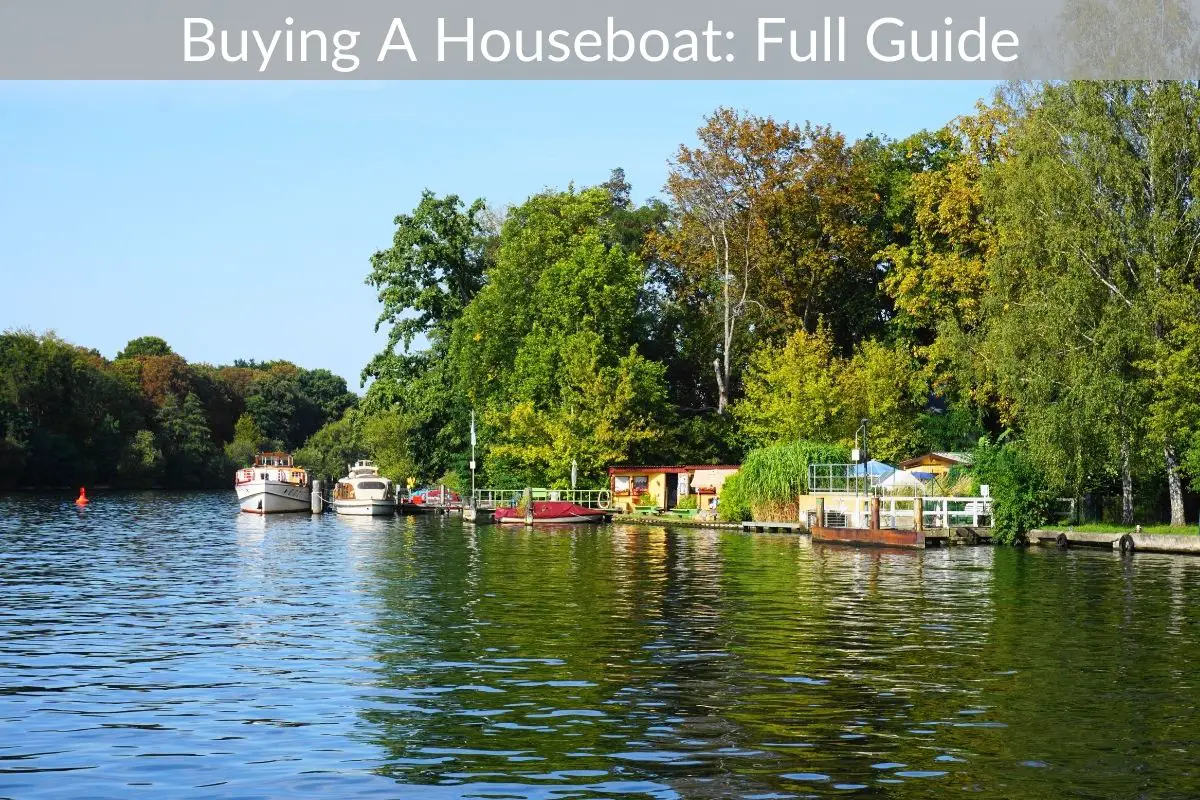
Matthew Robbs
I love the outdoors and especially spending time with my family. Whether on a boat or at the beach, my happy place is near the water.
Recent Posts
Renting A Houseboat: What You Need, Best Places, & More
If you have ever wished to spend the night on a houseboat or perhaps ever searched online for the most fascinating water experiences, then you may have come across the name houseboats. Well, if you...
Is Buying A Houseboat A Good Investment?
Anytime you buy any item you are making an investment. You are putting your hard earned dollars down to get an item in return. For smaller purchases we rarely think about how good of an...

WaterCraft 101
Your guide to fun on the water!
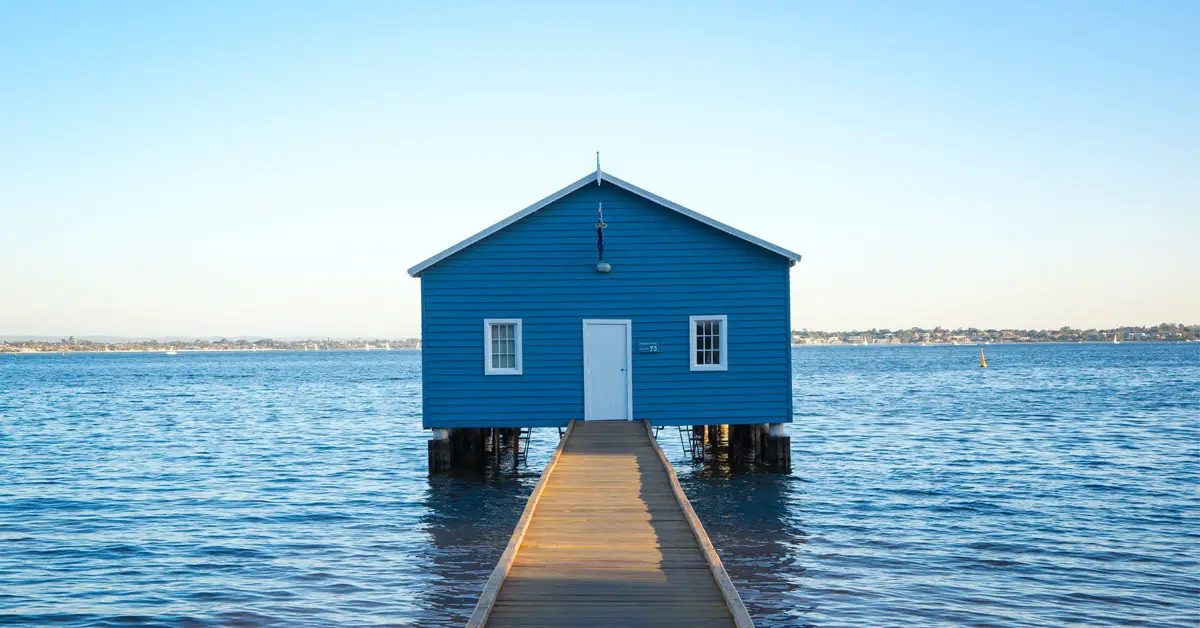
Boathouse vs. Houseboat: Choosing Between a Boathouse and a Houseboat for Your Waterfront Lifestyle
The choice of a waterfront lifestyle can bring about an interesting dilemma: Should you opt for a stationary dwelling on the water’s edge or a floating sanctuary that moves with the ebb and flow? This fundamental question often finds individuals at a crossroads, contemplating the allure of the two distinct yet intertwined options.
Choosing between a boathouse and a houseboat depends on your lifestyle preferences. If you desire mobility, adventure, and a close connection to the water, a houseboat may be your pick. But a boathouse could be preferable if stability, more living space, and a fixed community are important.
With the promise of serene mornings by the water and peaceful nights under the stars, each offers a unique perspective on life, bringing you closer to nature and providing a refuge from fast-paced city life. Today, we delve into this topic, discussing the pros and cons of each to help guide your decision.
Table of Contents
Understanding the Essence of a Boathouse
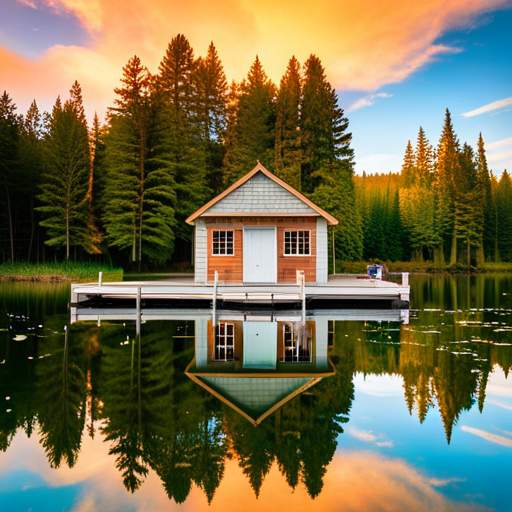
As its name suggests, a boathouse is a structure designed specifically for storing boats, typically with direct access to water bodies such as lakes, rivers, or even the ocean. However, modern boathouses often transcend this basic utility and embody the fullness of a comfortable dwelling.
These homes, built at the water’s edge, provide a sense of permanence and stability that contrasts with the transient nature of life on the water. Boathouses often offer more spacious living arrangements than their floating counterparts and may include a broader range of amenities.
With a stunning waterfront view, the allure of a boathouse lies in its capacity to blend the tranquility of a waterside retreat with the comforts and conveniences of a traditional home.
The Intriguing Allure of Houseboat Living
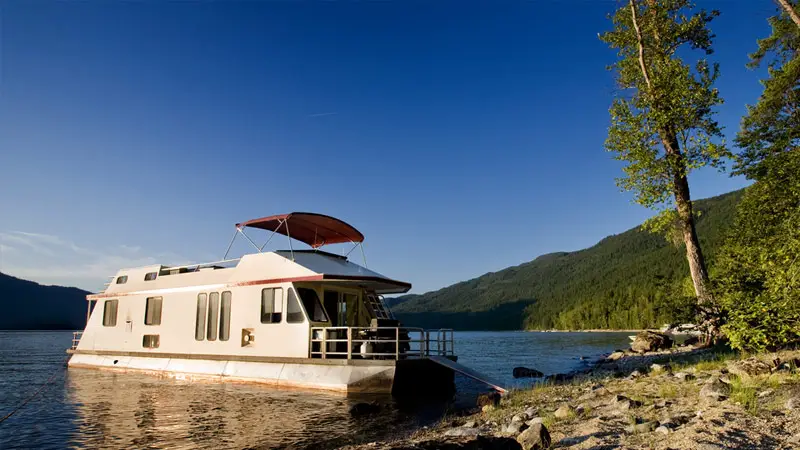
Houseboat living represents the epitome of a fluid, unhurried existence, free from the constraints of a fixed location. This lifestyle provides a unique opportunity to experience the world from a different viewpoint, literally floating atop the water’s surface.
Houseboats offer less space than traditional homes or boathouses and are ingeniously designed to maximize every inch, offering cozy and functional living quarters. They introduce a sense of adventure and mobility, allowing residents to relocate at will, exploring new locales while taking their home along for the journey.
Living on a houseboat equates to embracing a life tethered to nature’s rhythm, where the gentle rock of waves can lull you to sleep, and your morning view can change with your whims.
Comparing Costs: Boathouse and Houseboat Maintenance
When considering a waterfront lifestyle, it’s essential to weigh the financial implications of your choice. Both boathouses and houseboats come with their maintenance costs that, over time, can significantly affect your budget.
Initially, a boathouse might appear more costly due to land ownership and construction costs, but the long-term upkeep of a houseboat could balance the scales. Understanding these costs is critical to making an informed decision.
Boathouse Maintenance Costs:
- Construction and Renovation: Building or renovating a boathouse can be a costly venture, depending on the size, location, and desired amenities. Costs might include architectural and design services, construction labor, and building materials.
- Utilities and Taxes: Unlike houseboats, boathouses often require connections to city services like water, electricity, and sewer systems. Also, land taxes apply to boathouses.
- Regular Upkeep: Regular maintenance tasks include cleaning, painting, and minor repairs to keep the structure in good condition.
Houseboat Maintenance Costs:
- Initial Purchase: Depending on size, design, and luxury level, houseboats can range widely in price. Older models may require refurbishment, further adding to the cost.
- Docking Fees: Houseboats need a place to dock, and marinas charge fees for this, which vary widely depending on location and amenities.
- Insurance: Insurance for a houseboat is typically higher than a traditional home due to the risk associated with living on the water.
- Maintenance and Repairs: Like all boats, houseboats need regular maintenance to stay seaworthy. This includes hull cleaning, engine maintenance, and occasionally costly repairs.
Life on the Water: Exploring the Lifestyle Differences
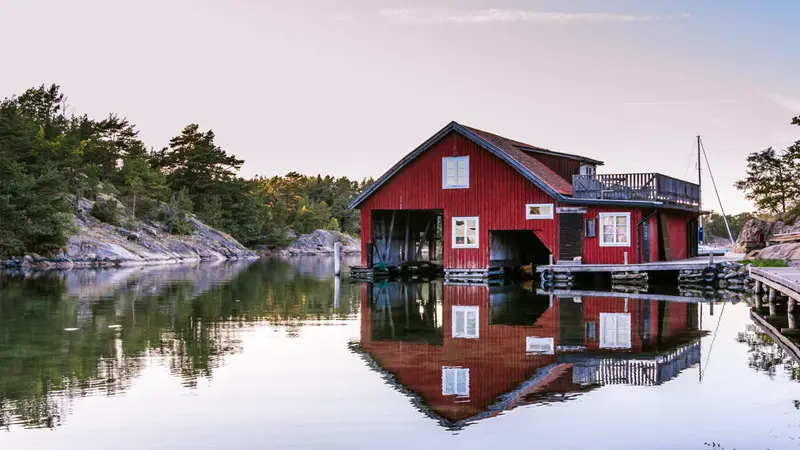
Embarking on a waterfront lifestyle is an adventure, whether you opt for a boathouse or a houseboat. The two choices offer distinctive lifestyles shaped by their unique features and inherent nature. A boathouse provides a rooted experience, being physically connected to the land, while a houseboat offers an exciting life of fluidity and change, tethered to the whims of the water. Let’s explore these differences further:
Boathouse Lifestyle:
- Stability: Boathouses offer the stability and familiarity of a traditional home, making it ideal for those who prefer a fixed address and a sense of permanence.
- Space: Boathouses typically have more space, allowing for larger families or more belongings. It can also accommodate guests more comfortably.
- Amenities: With a connection to land-based utilities, boathouses often have access to the same amenities as a regular home, such as internet and cable TV.
- Community: Living in a boathouse usually means being part of a lakeside or riverside community with nearby neighbors and shared public spaces.
Houseboat Lifestyle:
- Mobility: Houseboats offer the unique advantage of mobility, allowing you to change your scenery whenever you wish. You can explore different areas without leaving the comfort of your home.
- Closeness to Nature: Living in a houseboat means intimately connecting with the water and its inhabitants. You might find yourself sharing your mornings with passing waterfowl or evenings with the sound of waves.
- Limited Space: Space is typically more limited in a houseboat, requiring careful organization and a minimalist approach to belongings.
- Different Community Feel: A houseboat community can be transient as neighbors come and go, fostering a unique camaraderie among fellow water dwellers.
Location, Location, Location: Traveling with a Houseboat vs. Living on the Dock
The allure of a houseboat lies significantly in the promise of mobility and ever-changing views. With a houseboat, you can navigate to different locations, exploring new communities, landscapes, and waterfronts. This option appeals to those with an adventurous spirit and a desire for change.
As a houseboat dweller, you can choose to be anchored in a tranquil, secluded bay one day and docked at a bustling marina the next. Additionally, traveling to different places provides an exciting cultural and social exploration platform. However, it’s worth noting that while houseboats do offer mobility, many still choose a ‘home base’ marina where they primarily reside, venturing out occasionally.
On the other hand, a boathouse provides a fixed location, a constant address that offers a sense of community and belonging. Located on the water’s edge, boathouses provide stunning views, easy water access, and the stability of a land-based home. Although boathouses don’t offer the same mobility as houseboats, they provide an established connection with a specific location and community.
Living in a boathouse means joining the local community, participating in local events, and building long-term relationships with neighbors. Choosing between a traveling houseboat lifestyle and a dock-based boathouse lifestyle depends on your personal preferences and lifestyle goals.
The Versatility of Space: Comparing Comfort and Amenities
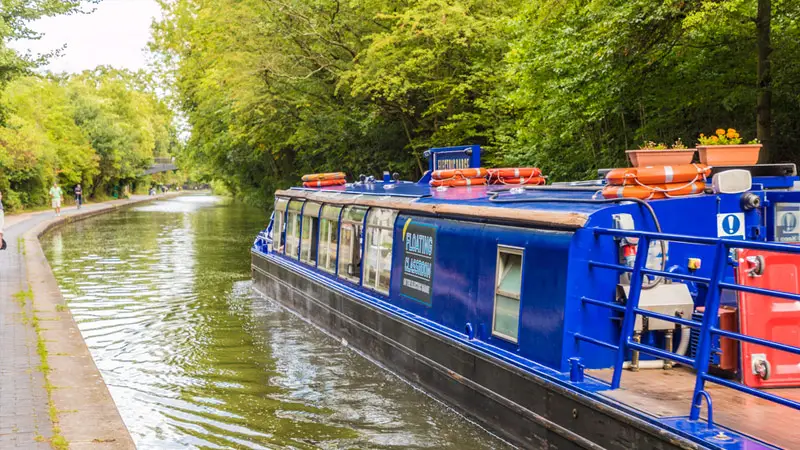
A significant factor to consider when choosing between a boathouse and a houseboat is the versatility of space and the level of comfort and amenities each provides. Generally, a boathouse, given its solid, land-based structure, can offer more spacious and diverse living arrangements. A houseboat, while compact and ingeniously designed, is typically more limited in space due to its need for mobility and buoyancy. Here’s a closer look at what each option brings to the table:
Boathouse Comfort and Amenities:
- Space: Boathouses, being stationary, often offer larger living spaces, which could include multiple rooms, a full-size kitchen, larger bathrooms, and outdoor areas such as patios or decks.
- Amenities: As land-based homes, boathouses can have standard home utilities and appliances, such as a dishwasher, washer and dryer, full-sized refrigerator, and more.
- Storage: With more space usually comes more storage, allowing for a broader range of personal belongings, furniture, and equipment.
- Expansion Possibilities: Given the right permits and land availability, a boathouse could be expanded or renovated.
Houseboat Comfort and Amenities:
- Compact Living: Houseboats are typically designed for compact, efficient living. This can mean cleverly designed fold-out furniture, convertible spaces, and smart storage solutions.
- Mobility-Friendly Amenities: Amenities on a houseboat are tailored for life on the move, with things like marine appliances, compact furniture, and storage designed for minimal movement while in transit.
- Limited Storage: Space is at a premium on a houseboat, so storage is typically limited. This can necessitate a minimalist lifestyle or creative storage solutions.
- Connection to the Outdoors: While space might be limited, houseboats often have deck space for outdoor living and a more intimate connection with the surrounding water.
Safety Concerns: Houseboat and Boathouse
Safety should always be paramount when deciding on your living arrangements, and both boathouses and houseboats have their own sets of safety concerns that need to be thoroughly considered.
For boathouses, potential issues to consider include the following:
- Flooding: Being located on the water’s edge, boathouses can be at risk of flooding, especially during heavy rain or in areas prone to high water levels.
- Access: Some boathouses, especially those in remote locations, may have limited access, making it more difficult for emergency services to reach if necessary.
- Weather: Boathouses may be more exposed to harsh weather conditions, such as storms or high winds, which can lead to damage or safety issues.
For houseboats, safety concerns might include the following:
- Navigation: Operating a large houseboat requires some degree of skill, and there can be risks associated with navigation, particularly in crowded or difficult waterways.
- Water Safety: Living on a boat requires good water safety practices. This includes knowing how to swim, having proper safety equipment, and understanding the risks associated with water.
- Maintenance: Houseboats require regular maintenance to ensure they remain seaworthy. Failure to maintain a boat can lead to critical safety issues.
Regardless of your choice, it’s important to understand these potential safety concerns and take necessary precautions to mitigate risks. Ensuring that your dwelling meets all local safety codes and regulations is also essential.
Bryan is a Las Vegas resident who loves spending his free time out on the water. Boating on Lake Mohave or Lake Havasu is his favorite way to unwind and escape the hustle and bustle of the city. More about Bryan.
Similar Posts

How to Legally Start a Food Boat Business? Navigating the Waters of Culinary Entrepreneurship
Starting a food boat business can be exciting and rewarding for culinary entrepreneurs, but it’s important to navigate the legal waters carefully. Operating a food boat involves unique challenges and regulations that may differ from traditional brick-and-mortar restaurants or food trucks. As such, it’s essential to clearly understand the legal requirements and regulations for setting…

How Long Does It Take to Get to Europe by Boat? A Comprehensive Guide to Transatlantic Travel
Navigating the vastness of the Atlantic Ocean and embarking on a journey from the United States to Europe by boat is an experience steeped in history and wonder. For many, it’s a chance to follow the paths of intrepid past explorers, embracing the thrill of transatlantic travel, the mystique of the open sea, and the…

Pontoon vs. Speed Boat: Which Watercraft Suits Your Lifestyle and Needs?
Navigating boat ownership’s vast, uncharted waters might feel like steering through a storm without a compass. In the great sea of choices, two vessels rise above the waves and beckon with a promise: a sturdy pontoon and a sleek speed boat. Choosing between a pontoon and a speed boat hinges on your lifestyle and needs….

Can You Drink on a Boat If You’re Not Driving? Navigating Alcohol Consumption Laws on Boats
Spending a day on a boat with friends or family can be a fun and relaxing way to enjoy the outdoors. However, if you plan on having a few drinks while on the boat, it’s important to know the laws surrounding alcohol consumption on the water. Many people wonder if they can drink on a…
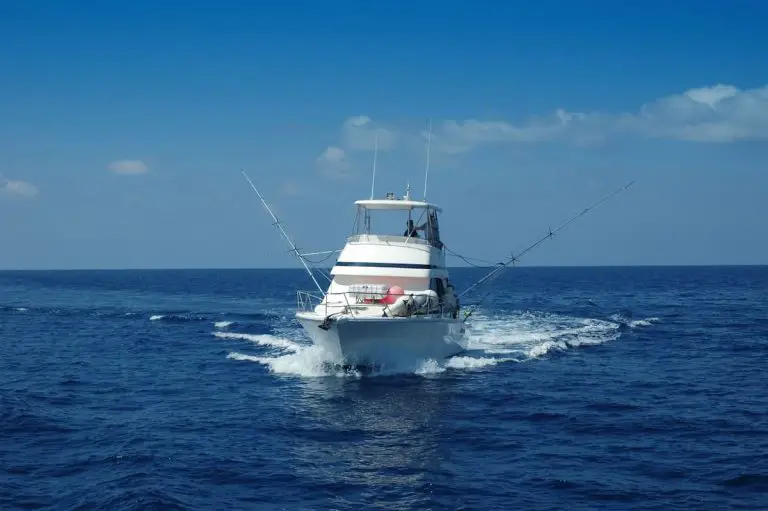
How Does WiFi Work On a Boat? (Explained)
Over the last few decades, boats have become better equipped with new technologies for safety and efficiency. Over that time, communications have been revolutionized by the internet. So can you access the internet from a boat when you’re out on the lake or at sea? Boats don’t have built-in WiFi as standard equipment. While modern…

Boat Ownership Costs And Expenses (Read This Before You Buy!)
Are you a new boat owner, or plan to be one soon? If yes, then great! First things first though, there will be some significant boat ownership costs involved and you’ll need to know what to expect. Not to freak you out, but the last thing you want is for you to be that guy…
The Guide to Floating Homes and Houseboats
Here's what you need to know about foregoing life on land for a house that floats.
The Guide to Floating Homes

Getty Images
Floating houses are frequently sold along with their slip, and in many ways sell like a typical house.
Waterfront property certainly has its appeal. Access to the river, lake or ocean can provide endless enjoyment, especially if you're a person who likes getting out on the water. But have you considered living on the water itself?
There are a few options for making your next home on a boat or along a dock, from houseboats to a yacht or sailboat to a more permanently fixed floating house. Here's what you need to know before buying a floating home or houseboat.
What Is a Floating House?
A floating home is most often used to describe a house on the water that doesn't have a motor or navigation system, commonly docked among other floating homes. The hull is often made of concrete. Because they're not mobile under their own power, floating homes typically stay in one place long term and are permanently attached to electrical, water and sewer lines.
Floating homes "essentially are barges that houses are built into," says Scott Collins, who serves as public relations co-chair with his partner, Arleen Ma, for Floating Homes Association Inc. in Sausalito, California. The association located in Richardson Bay, which is north of San Francisco , is made up of a community of roughly 400 floating homes.
What Is a Houseboat?
Houseboats often have a more house-like look than a sailboat or yacht, with a rectangular structure to maximize space indoors. The hull is more often made of fiberglass, steel or aluminum, and the motor and navigation systems mean a houseboat can travel on its own and be hooked up to side systems in a marina slip for access to power and water.
However, you're less likely to use a houseboat for day trips down the river or out onto the lake. Bill Drage, principal owner of houseboat manufacturing company East Coast Houseboats, says that most of his clients plan to keep their houseboat dockside at all times.
The size and shape of a houseboat makes it harder to direct than a yacht or sailboat – Drage says one client "said it was like moving a refrigerator across the water."
Other Boats as Residences
If you prefer the look of a more traditional boat to a houseboat or floating home, you can choose to live on just about anything you can afford as long as it's comfortable. Yachts, trawlers and some sailboats have enough space to live below deck.
If you're living on a powered boat or boathouse and primarily staying in a marina where you have a slip, know the marina's rules before claiming your boat as your permanent residence. Some marinas have a maximum number of nights allowed on board, while others are more amenable to full-time residents.
How to Buy a Floating Home or Houseboat
Floating homes are frequently sold along with their slip, and in many ways sell like a typical house. Real estate agents will list the property on the market like they would any home on land. In cities where floating house communities are established, you can often find floating home listings on Zillow, realtor.com or other consumer-facing real estate information sites.
However, a floating home cannot be purchased with a traditional mortgage . Floating home loans do exist and are more commonly offered by local banks and credit unions where floating home communities exist than a national bank or lender. Houseboat manufacturers, floating home builders and floating home communities can be a helpful resource for researching your loan options.
Financing a houseboat is the same as financing any other kind of boat, and it is considered a personal property loan.
If you're looking for a houseboat or another type of boat you can convert into your new home, websites for boat sales, houseboat and boat manufacturers and boat dealers are the best places to go.
How Much Does It Cost To Buy a Floating House or Houseboat?
Like with buying a house, floating homes and houseboats vary widely in cost to buy one. For a new houseboat from East Coast Houseboats, Drage says the range starts with a one-bedroom, 22-foot houseboat that starts under $90,000. At the higher end of the spectrum, a two-story houseboat that's 50 feet long and 16 feet wide goes for around $350,000.
Existing floating homes and houseboats on the market can be less than $100,000 and reach $1 million, depending on size, style, condition and location. If a slip comes included, you can naturally expect to pay more.
Floating Houses Have Additional Fees
Don't forget to factor in the monthly cost of keeping a slip or berth on the dock. Collins and Ma report berth fees to be a part of the Floating Homes Association in Richardson Bay can be hefty. "They can be expensive – they're over $1,000 a month. But the property taxes are not set up on the land, only on the dwelling. So your property taxes are less, but your berth fee is more," Collins says.
If you're living in a marina that isn't an established residential community, you may not be required to pay property taxes at all. Be sure to inquire with the marina as you calculate your bottom line.
What to Know About Maintaining a Floating House Houseboat
The amount of maintenance you'll find on a floating home or houseboat is similar to what you'll find in most homes, though how you maintain it may be a bit different.
When it comes to systems that don't operate exactly the same as a home on land, a person with experience working on floating houses is ideal. "Plumbing and electrical and painting – you really should have someone that specializes (in doing the work)," Collins says. In a floating home community, you're likely to find that those specialists are your neighbors.
With so much exposure to water, expect a bit more rust and warping as a result. "Wood and metal deteriorate literally in front of your eyes," Collins says.
Phyllis and Guy Biederman have been residents of Floating Homes Association Inc. on Richardson Bay for about nine years, and they note that regular maintenance issues would be most closely in tune with having a seaside home, because of the similar levels of exposure to salt water and weather coming off the water.
Because many floating homes have a concrete hull, it's important to check on the hull's condition and be diligent to repair any cracks that form. "It would be kind of like having a cracked foundation," says Guy Biederman, who teaches creative writing.
"Except houseboats can sink," adds Phyllis Biederman, a nurse.
Tips for Living on the Water
Here are a few additional tips to keep in mind before you forego life on land for a floating home or houseboat:
Get to know the neighbors. Especially if you're living in a community of houseboats or floating homes, you're likely to recognize your neighbors quickly, and even more likely to become close.
"The minute we moved here we received welcome gifts like flowers, cookies, books," Ma says of the Floating Homes Association community. "I thought, 'This would never happen in the city.'"
Less is more. Like with living in a tiny house, your storage on a floating home, houseboat or other kind of residence on the water will leave you with minimal storage space. To avoid the added cost of keeping a storage unit on land, get strict about how much you accumulate.
"Any time something comes into your house, something has to come out of your house," Collins says.
Prepare for plumbing inconvenience. Even if you're living dockside, plumbing on a floating home doesn't work the same as it does for a house on land – a pump that uses electricity is a key part of getting waste out of a holding tank that's part of your home and to the line that goes to the sewer.
"If the power goes out, which it can do quite a bit in the winter, you don't flush your toilet and you don't use your water," Guy Biederman says.
Try it out first. Life in a floating home isn't for everyone. Make sure it's a good fit by visiting friends who live on the water or sign up for a tour of a floating home community. Additionally, Drage says about 80% of his clientele right now are people purchasing houseboats to use as short-term rentals through services like Airbnb or VRBO, which can be an easy opportunity to try out dockside life for a couple nights – or even a couple weeks.
The Best Places to Live By the Beach

Compare Top Mortgage Lenders
Advertiser Disclosure
Tags: real estate , housing , moving , water
You May Also Like
5 desired features in vacation rentals.
Liz Brumer-Smith March 27, 2024

The Best Places to Retire North Carolina
Josephine Nesbit March 27, 2024

Is a Bathroom Renovation Worth It?
Liz Brumer-Smith March 26, 2024

Navigate Spring Homebuying in NYC
Rebecca Blacker March 25, 2024

What Home Improvements Don't Add Value
Josephine Nesbit March 25, 2024

White House's Renters Bill of Rights
Josephine Nesbit March 21, 2024

Small Backyard Design Ideas
Aly J. Yale March 20, 2024

What the Realtor Lawsuit Means for You

Home Renovation Mistakes To Avoid
Liz Brumer-Smith March 19, 2024

What is a Kitchen Triangle?
Aly J. Yale March 19, 2024

The Best Places to Retire in Florida
Josephine Nesbit March 18, 2024

Should You Pay for Great Schools?
Maurie Backman March 14, 2024

What Can You Buy for $3,500 a Month?
Kristi Waterworth March 12, 2024

The Guide to a Real Estate Bidding War
Steven Gottlieb March 11, 2024

Pros and Cons of an HOA
Geoff Williams March 8, 2024

Is a Housing Market Correction Coming?
Kristi Waterworth and Devon Thorsby March 7, 2024

5 Outdated Design Trends Aging Your Home
Liz Brumer-Smith March 6, 2024

What to Do If Your Pipes Freeze
Josephine Nesbit March 4, 2024

5 Improvements That Help a Home's Value
Liz Brumer-Smith March 4, 2024

Entertain Better with a Wet Bar
Karen Dybis March 1, 2024

Boat Reviews
- Aquila Boat Reviews
- Aspen Boat Reviews
- Avalon Boat Reviews
- Aviara Boat Reviews
- Axopar Boat Reviews
- Barletta Boat Reviews
- Bayliner Boat Reviews
- Centurion Boat Reviews
- Charger Boat Reviews
- Cruiser Yachts Reviews
- Formula Boat Reviews
- Fountaine Pajot Reviews
- Freeman Boatworks Reviews
- Galeon Luxury Yachts Reviews
- Intrepid Boat Reviews
- Jupiter Marine Reviews
- Manitou Boat Reviews
- Native Watercraft Reviews
- Phenom Yacht Reviews
- Pursuit Boat Reviews
- Sailfish Boat Reviews
- Sea Ray Boat Reviews
- Sea-Doo Watercraft Reviews
- SeaVee Boat Reviews
- Solace Boat Reviews
- Windy Boat Reviews
- X Shore Boat Reviews
- Yamaha Boat Reviews
- Boats Specs
- Marine Pros
- Boat Insurance
- Boat Warranties
- Boat Transport
- Boat Towing
- Marine Forecasts

Your Ultimate Boating Resource

2024 Pursuit OS 445: An Overview
Boat safety 101: exploring the serenity and adventure of boating, the moment of truth – 6 signs you need a new boat, is it possible to wakesurf on a pontoon boat, 2024 aquila 47 molokai review, 2024 sea-doo switch 13 sport review, 2024 aspen c120 review, what is the difference between a houseboat and a yacht.
When it comes to boating, there are a wide range of options to choose from. Two popular choices are houseboats and yachts. While they may seem similar at first glance, there are some key differences between the two.
Houseboats are essentially floating homes. They are designed to be lived in for extended periods of time, and often have many of the same features you would find in a traditional home. They typically have multiple bedrooms, bathrooms, and living spaces, as well as full kitchens and even outdoor decks. Houseboats can be used for everything from weekend getaways to full-time living.
Yachts, on the other hand, are designed primarily for leisure and pleasure. They are typically smaller than houseboats and have fewer amenities geared towards long-term living. However, they often feature luxurious accommodations and state-of-the-art technology, making them the perfect choice for those who want to cruise in style. Yachts are also popular for hosting events or entertaining guests.
In terms of cost, houseboats and yachts can vary widely. Houseboats can start at around $75,000, but can easily run into the millions of dollars for high-end models. Yachts can be even more expensive, with prices ranging from $100,000 for smaller models up to several hundred million dollars for the most extravagant vessels.
Despite their differences, both houseboats and yachts offer a unique way to enjoy the water. Whether you’re looking for a comfortable home away from home or a luxurious escape, there’s a boating option that’s right for you.
Related Questions
What type of wood is used for pier pilings, what is the difference between a dock and a floating pier, what is the proper technique for pulling a beginner wakeboarder, what does ‘no wake’ mean on a lake, what is the difference between wash and wake, is wakesurfing possible in the sea, why don’t wooden piers rot, what size wakeboard is needed, how to achieve more pop on a wakeboard, does wake surfing translate to ocean surfing, latest posts, the top 9 reasons to maintain a meticulous boat log, don't miss, our newsletter.
Get the latest boating tips, fishing resources and featured products in your email from BoatingWorld.com!
Eco-Savvy Sailing: Expert Tips for Reducing Fuel Costs and Enhancing Your Boating Experience
Sea safety blueprint: constructing the perfect float plan for your boating adventures, 10 essential tips for fishing near private property, the benefits of using a drift sock: guidance for anglers, lure fishing: secrets for imitating live bait and attracting fish, explore the untapped depths of america’s best bass fishing spots, tackle your catch-and-release adventures with these 6 tips, outboard motor maintenance: tips for keeping your engine in top shape, the essential boat tool kit: tools every boater needs, diy boat building: 8 tips and tricks for building your own vessel, the art of miniature maritime craftsmanship: ship in a bottle, antifouling paints: a guide to keeping your boat shipshape, beginner’s guide to standup paddle boarding: tips and techniques, boating for fitness: how to stay active on the water, kayak safety: how to stay safe on the water, anchoring in a kayak or canoe: how to secure your small boat, 2024 yamaha 222xd review, 2024 sailfish 316 dc review, 2023 seavee 340z review, 2023 centurion fi23 review, gear reviews, megabass oneten max lbo jerkbait review, fortress anchors fx-7 anchoring system review, fortress anchors fx-11 anchoring system review, fortress anchors commando anchor kit review, fortress anchors aluminum anchors review, stay in touch.
To be updated with all the latest news, offers and special announcements.
- Privacy Policy
7 Differences Between Houseboat and Yacht: Choose Your Oasis
Houseboats and yachts differ in design, mobility, cost, and purpose. Yachts offer luxury, speed, and travel, while houseboats prioritize comfort, stability, and a home-like feel on calm waters.
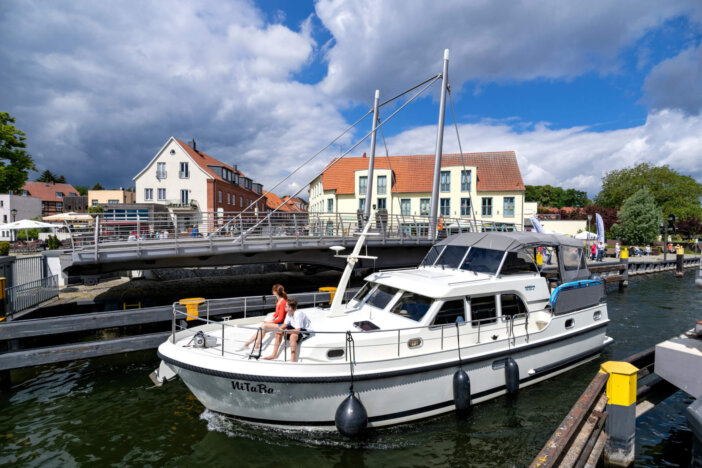
Houseboats and yachts are two distinct forms of living on water. They differ in design, mobility, cost, and accessibility. Here are the seven key differences to consider when choosing between them.
Disclosure: As an Amazon Associate, this site earns from qualifying purchases. Thank you!
1. Design and Mobility
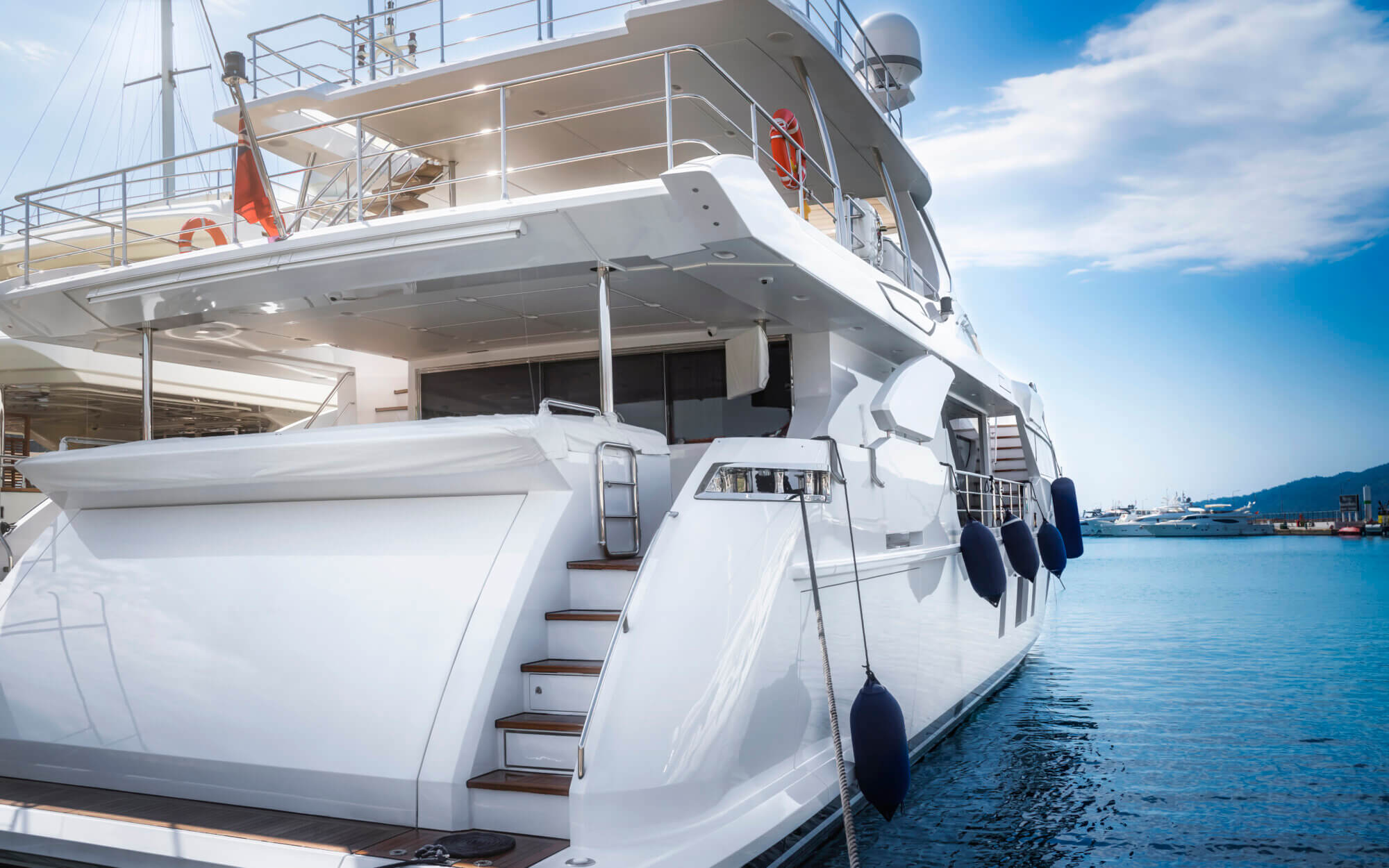
At first glance, the primary difference between a houseboat and a yacht is their design and purpose. A yacht is a vessel primarily designed for pleasure cruising, often associated with luxury and speed, making it ideal for those desiring an adventurous marine lifestyle.
On the other hand, a houseboat is more akin to a stationary home on the water, designed for comfort and extended stays at a fixed location, perfect for those seeking tranquility and stability.
Hey hey – real quick! Don’t forget to subscribe to get our best content 🙂
Type your email…
When it comes to mobility, yachts have the upper hand. They are built for high-speed travel across open waters, allowing you to explore various ports of call.
In contrast, houseboats are typically moored at a specific location and aren’t meant for long-distance travel. However, some houseboats can navigate short distances within calm waters, such as lakes and rivers.
2. Amenities and Comfort
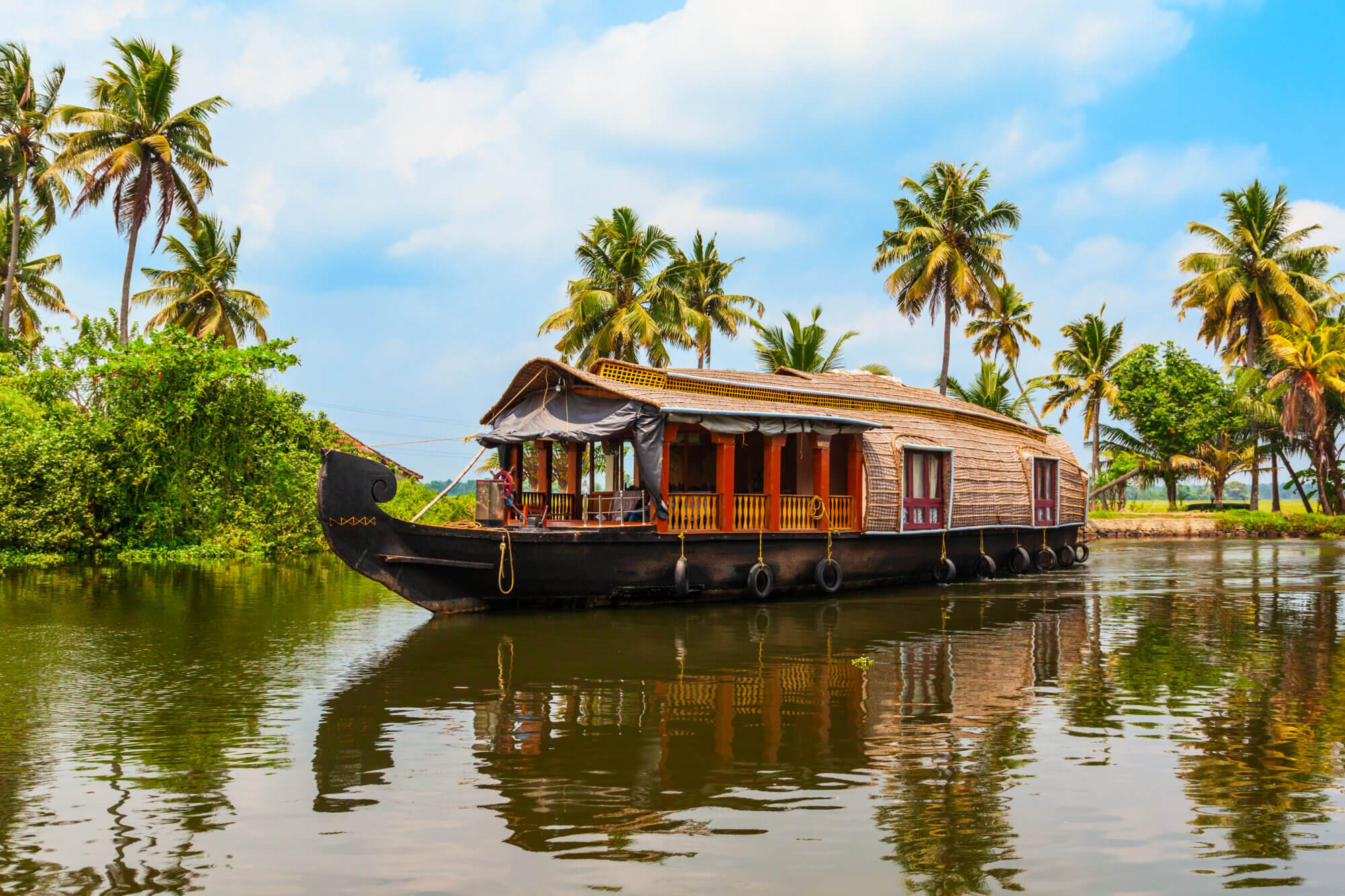
Both houseboats and yachts can be equipped with luxurious amenities. However, the type and extent of these amenities largely depend on the size and design of the vessel.
Yachts, particularly larger ones, can feature multiple bedrooms, full-size kitchens, spacious living areas, and even extravagant extras like Jacuzzis and home theaters. They are designed to provide comfort while maximizing space efficiency.
Houseboats, on the other hand, prioritize residential comfort over mobility. As a result, they often offer more living space . They can be equipped with amenities similar to those found in traditional homes, including larger kitchens, full-size bathrooms, and expansive living areas.
Some houseboats also feature outdoor spaces, such as decks and patios, for residents to enjoy their aquatic surroundings.
3. Ownership and Maintenance
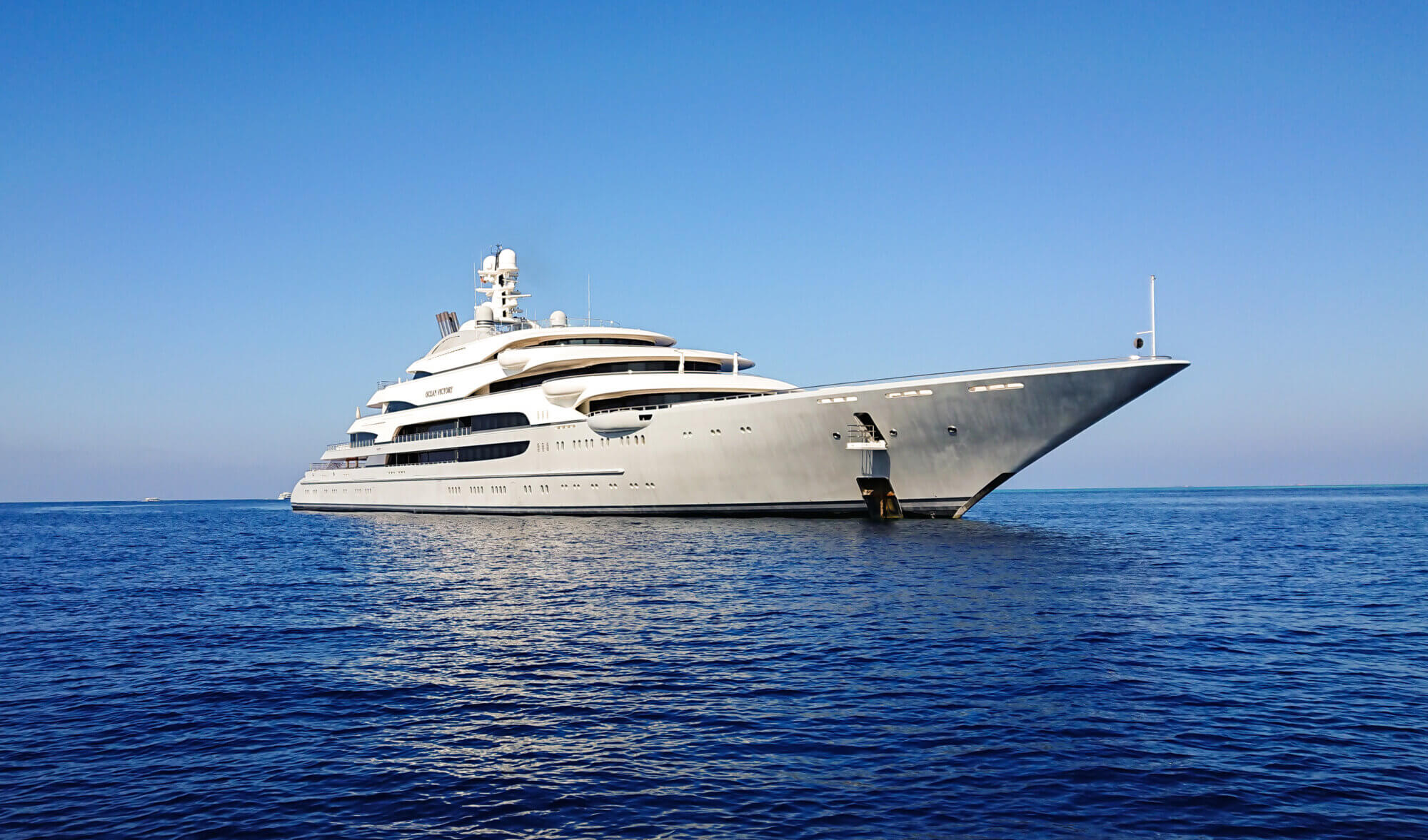
Ownership of a yacht or a houseboat comes with its own set of responsibilities and costs. Yachts, due to their complex designs and high-end features, typically require more maintenance.
This can include regular engine servicing, hull cleaning, and upkeep of onboard systems. Furthermore, yachts depreciate over time, which can impact their resale value.
Houseboat ownership, while seemingly simpler, has its own unique challenges. These floating homes need regular maintenance to prevent water damage and corrosion.
Additionally, owners must pay docking or mooring fees , unless they own the water lot where the houseboat is moored. Nonetheless, houseboats tend to depreciate at a slower rate than yachts, making them a potentially better investment in the long run.
4. Travel and Exploration
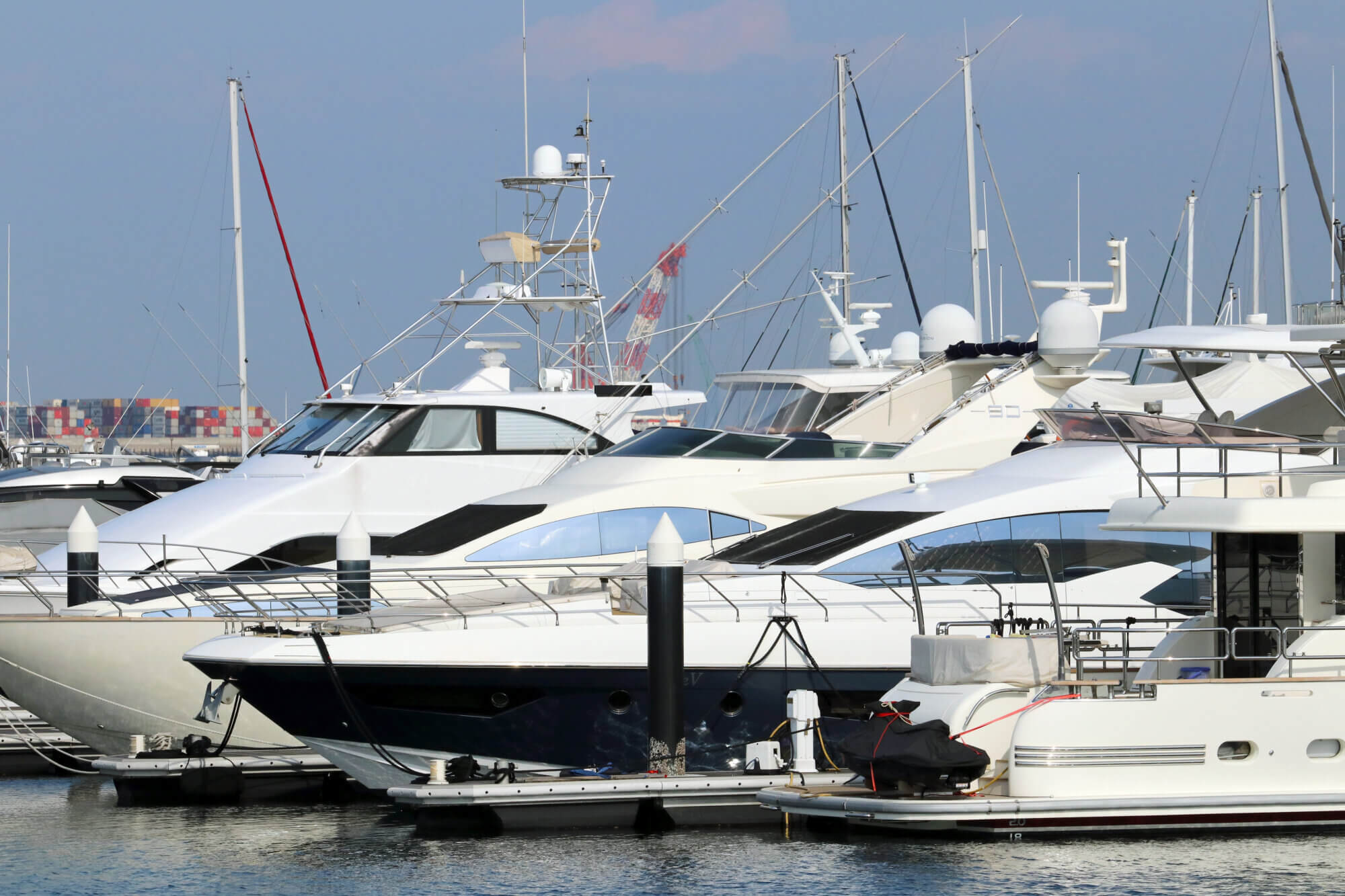
The allure of a yacht lies in its promise of travel and exploration. With the right yacht, you can cruise across oceans, visit exotic locations, and enjoy the thrill of navigating open waters.
Moreover, yachts offer a certain level of prestige and social status, making them popular among the affluent.
On the other hand, houseboats offer a different kind of adventure – the chance to live in harmony with nature, surrounded by serene waters.
While not designed for ocean cruising, houseboats are perfect for those who prefer a quiet, stable living environment with the unique experience of being on the water. They offer an escape from the hustle and bustle of city life without sacrificing the comforts of home.
5. Community and Lifestyle
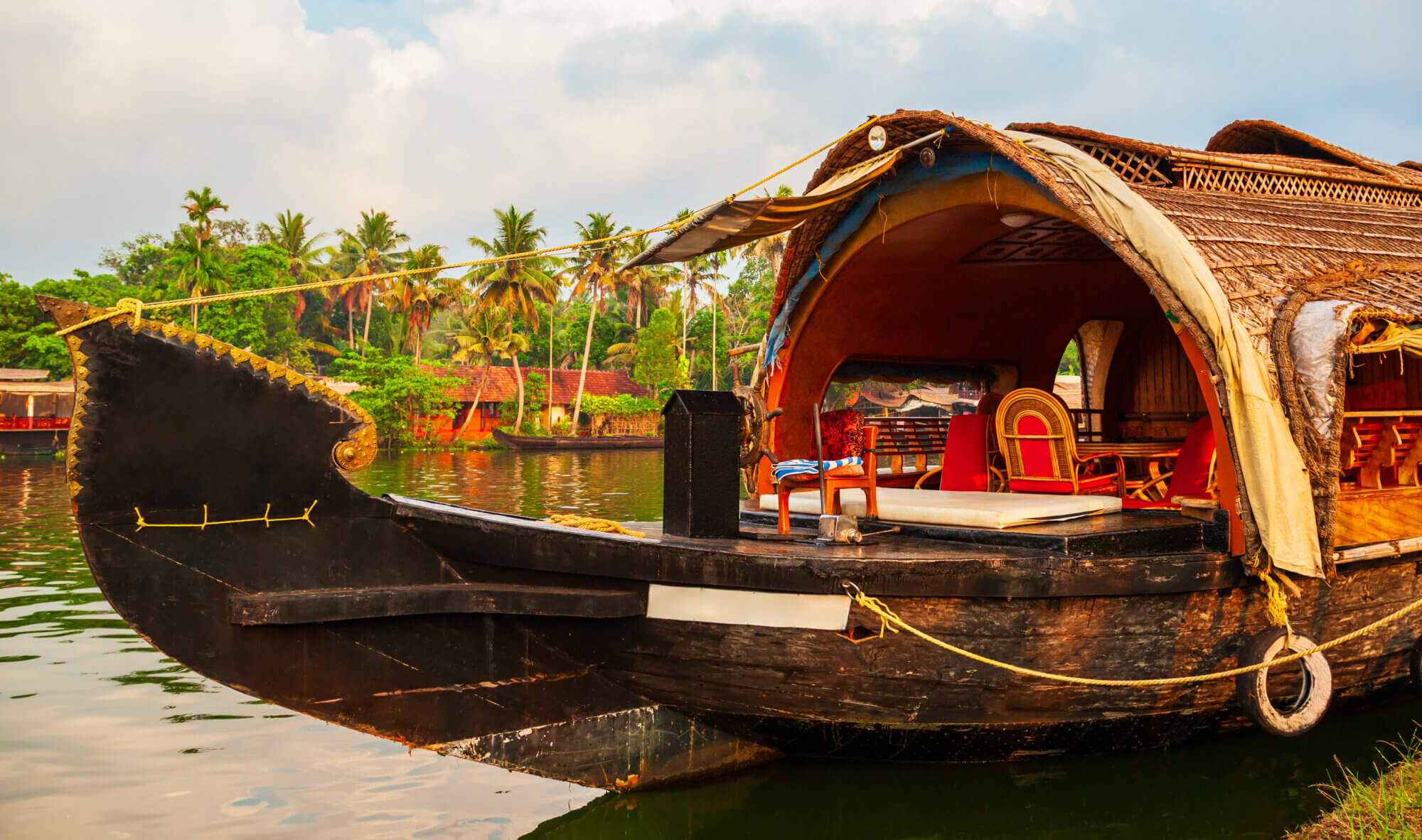
Yacht and houseboat ownership also differ in terms of community and lifestyle. Yacht owners often enjoy a vibrant social scene, with opportunities to participate in yacht club activities, regattas, and exclusive events. The yachting lifestyle is often associated with luxury, adventure, and social prestige.
The houseboat community, meanwhile, tends to be more laid-back and close-knit. Living in a houseboat community often means knowing your neighbors and participating in community events.
This lifestyle appeals to those seeking peace, tranquility, and a strong sense of community on the water.
6. Cost and Accessibility
The cost of owning a yacht or a houseboat can vary significantly. Yachts are generally more expensive due to their design, construction, and amenities.
The cost of yacht ownership also includes maintenance, insurance, docking fees, and fuel costs. Despite these expenses, yachts can be chartered out when not in use, providing a potential source of income.
Houseboats, on the other hand, are often more affordable. While they have maintenance and docking costs, these are typically lower than those associated with yachts.
Houseboats also offer greater accessibility to the liveaboard lifestyle, making them a popular choice among retirees and those seeking alternative housing options.
Plus, some houseboat communities provide shared amenities like utility hookups, laundry facilities, and community centers, further enhancing their appeal.
7. Purpose and Usage
The purpose and usage of houseboats and yachts differ greatly. As a pleasure vessel, a yacht is ideal for those who enjoy sailing and sea travel. It offers the excitement of exploring new locations and the thrill of mastering marine navigation.
In contrast, a houseboat serves as a floating home, providing a unique living experience on the water. It’s best suited to those who enjoy a peaceful, stable living environment with the added charm of life on the water.
At what point does a boat become a yacht?
A boat becomes a yacht when it reaches a certain size, usually around 10 meters (33 feet) in length, and is used for pleasure or sport. The term ‘yacht’ also implies a certain level of luxury and comfort, as well as the ability to undertake longer, more adventurous voyages.
What is the difference between a boat and a houseboat?
While both are types of watercraft, a boat and a houseboat serve different purposes. A boat is a general term that refers to various vessels used for transportation, fishing, sports, or leisure activities.
A houseboat, however, is specifically designed as a dwelling with residential amenities and tends to remain stationary or travel short distances within calm waters.
Is a houseboat seaworthy?
Most houseboats are not designed to be seaworthy in the same way as yachts or other ocean-going vessels. They are intended for use on calm bodies of water such as rivers, lakes, and protected coastal areas.
However, some houseboats are built with more robust designs and materials, allowing them to handle rougher conditions. It is crucial to understand the capabilities and limitations of your houseboat before venturing out into open waters.
What makes a boat become a yacht?
A variety of factors can turn a boat into a yacht. These include its size, purpose, design, construction, and the level of luxury it offers. A yacht typically exceeds 10 meters in length and is designed for pleasure or sport.
It often features advanced navigation systems, high-quality construction materials, luxurious amenities, and sophisticated design elements that set it apart from other boats.
Whether you lean towards the adventurous allure of a yacht or the tranquil charm of a houseboat, what matters most is finding a vessel that fits your lifestyle, preferences, and budget.
Both offer unique ways to experience life on the water, each with its own set of benefits and challenges. So weigh your options, consider your priorities, and make the choice that will bring you the most joy and satisfaction.
Similar Posts
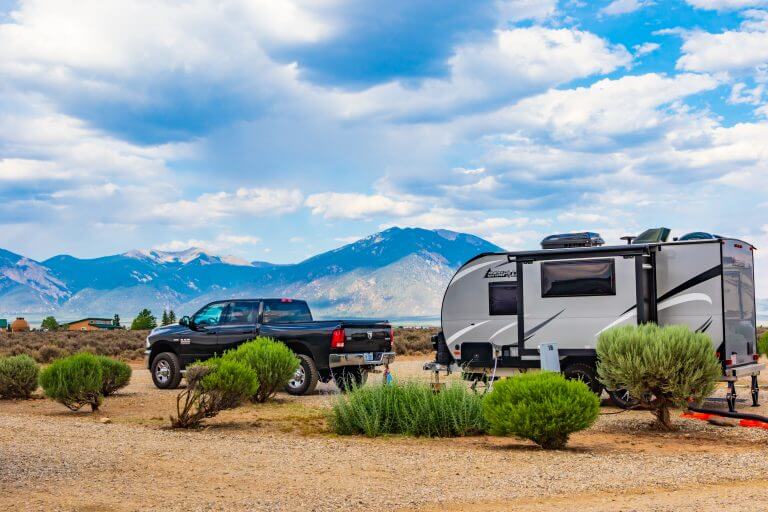
10 Best Camper Trailers for Every Budget and Adventure
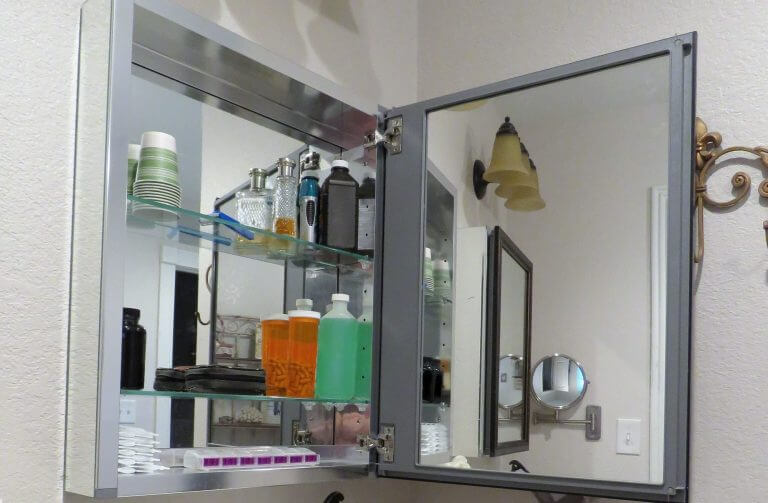
5 RV Medicine Cabinet Organizer Tips for Max Efficiency
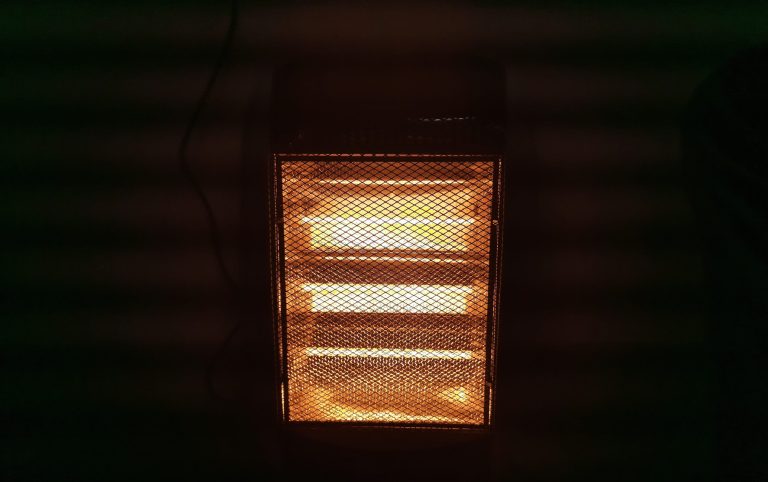
7 Best Portable Heaters for Campers: Stay Cozy on the Go
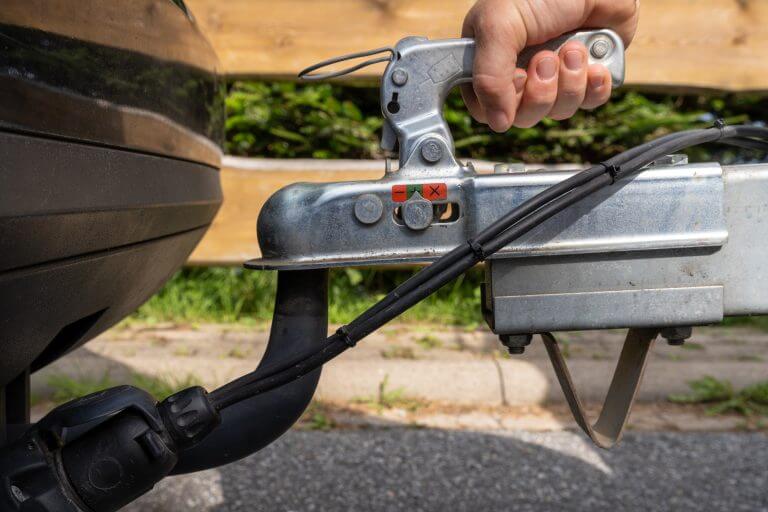
5+ Key Trailer Hitch Lock Pins To Enhance Security
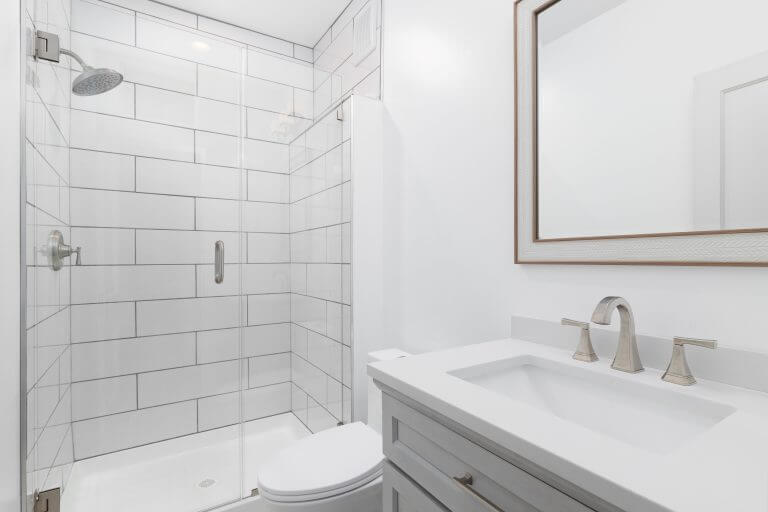
How to Replace the Shower Door in Your RV
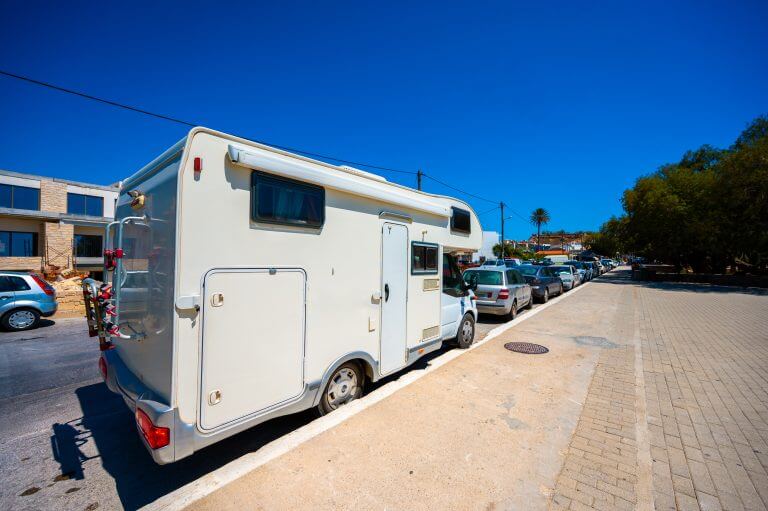
5 Types of Curb Ramps for RV Owners: Pros, Cons, and More
Discover more from habitatista.
Subscribe now to keep reading and get access to the full archive.
Continue reading

Stellar Outdoor Life
Explore, discover, and connect with the outdoors!

Boathouse vs. Houseboat: Choosing the Perfect Waterfront Retreat
When it comes to waterfront living, there are two popular options that often come to mind: the boathouse and the houseboat. Both offer a unique and enticing way to enjoy the beauty and tranquility of being on the water. However, they have distinct differences that make each option better suited for certain lifestyles and preferences. In this comprehensive article, we will explore the pros and cons of a boathouse vs. houseboat, helping you make an informed decision when choosing the perfect waterfront retreat.
Boathouses: A Classic Waterfront Haven
A boathouse is a structure built on the water’s edge, typically used for storing boats. Boathouses can be either attached or detached from the shore, providing direct access to the water. They serve as a secure and convenient storage space for watercraft, protecting them from the elements.
Design and Construction
Boathouses often feature traditional architectural designs and are built with durable materials to withstand water exposure. They can vary in size, accommodating different types of watercraft and providing additional storage space for equipment and accessories. Boathouses can be constructed with various amenities, such as electricity, plumbing, and entertainment areas, depending on the desired functionality.
Benefits of Boathouses
- Convenient Boat Access: Boathouses offer direct access to the water, allowing boat owners to quickly launch and retrieve their vessels without the need for a separate marina or docking facility. This convenience is particularly appealing for those who frequently use their boats.
- Protection from the Elements: Boathouses provide shelter and protection for boats , shielding them from the damaging effects of sun, wind, rain, and snow. This helps prolong the lifespan of the boats and reduces the maintenance required.
- Multi-Purpose Use: Boathouses can be versatile spaces, serving not only as boat storage but also as entertainment areas, workshops, or guest accommodations. This flexibility adds value and functionality to the property, allowing for a variety of uses beyond boat storage.

Houseboats: A Floating Home on the Water
A houseboat is a floating residence designed to be lived in full-time or used as a vacation home. Unlike boathouses, houseboats are not permanently fixed to the shore and can be moved to different locations, offering a unique sense of mobility and adventure.
Design and Amenities
Houseboats come in various sizes and designs, ranging from basic models to luxurious floating homes. They are equipped with essential amenities such as bedrooms, bathrooms, kitchens, and living spaces, offering a comfortable and unique living experience. Some houseboats also feature additional luxuries like rooftop decks, hot tubs, and entertainment systems.
Advantages of Houseboats:
- Mobility and Exploration: Houseboats allow residents to explore different water bodies and waterfront locations, offering a sense of adventure and freedom. You can change your surroundings without the need to sell or relocate a fixed property, making it an appealing option for those with a wanderlust spirit.
- Waterfront Living Experience: Living on a houseboat provides an immersive waterfront lifestyle, surrounded by nature and stunning views. It allows you to enjoy activities like fishing, swimming, and watersports right from your doorstep. Houseboats offer a unique connection to the water and the ability to fully embrace a waterfront lifestyle.
- Lower Costs and Maintenance: Houseboats can be a cost-effective alternative to traditional homes, as they generally have lower purchase prices and property taxes. Additionally, maintenance is often simpler and less expensive compared to land-based houses. Houseboats typically have smaller footprints, resulting in reduced cleaning, maintenance, and utility costs.

Boathouse Vs. Houseboat Comparison Table
Here’s a comparison table highlighting the key differences between boathouses and houseboats:
Keep in mind that the suitability of each option will depend on individual preferences, budget, and specific requirements. Consider these factors carefully when making a decision regarding your perfect waterfront retreat.

Factors to Consider When Choosing Between Boathouses Vs. Houseboat
Here are the key issues to consider when choosing between a boathouse and houseboat:
A. Location and Regulations
Research the local laws and regulations regarding boathouses and houseboats in the area you are interested in. Some regions may have restrictions on where houseboats can be moored or limitations on the construction and use of boathouses. Ensure you are familiar with any permits or licenses required for either option.
B. Lifestyle and Flexibility
Consider your lifestyle and preferences. If you value the freedom to explore different locations and want the ability to change your surroundings, a houseboat might be the better choice. However, if you prefer a fixed residence with the convenience of easy boat access, a boathouse could be more suitable.

C. Budget and Financing
Evaluate your budget and financial considerations. Boathouses and houseboats can vary greatly in price, so ensure that your choice aligns with your budget and that you are aware of any additional costs associated with mooring fees, maintenance, and insurance. Additionally, consider the financing options available for each type of waterfront property.
D. Maintenance and Upkeep
Think about the level of maintenance and upkeep you are willing to commit to. Boathouses typically require regular maintenance to prevent water damage and keep them in good condition. This may include routine inspections, cleaning, and repairs. Houseboats may require maintenance related to the boat’s engine and hull, in addition to regular home maintenance tasks.
E. Resale Value and Investment
Consider the potential resale value and investment prospects of boathouses and houseboats in your chosen location. Factors such as market demand, location desirability, and the overall condition of the property can influence the investment potential of your waterfront retreat. Consulting with real estate professionals familiar with the local waterfront market can provide valuable insights.
The Verdict
Whether you choose a boathouse or a houseboat, both options offer an incredible waterfront living experience. Understanding the unique features, benefits, and considerations of each will help you make an informed decision that aligns with your lifestyle, preferences, and budget. So, take the time to explore the possibilities and create your ideal water-based retreat that will bring you joy and relaxation for years to come. Remember to consider the practical aspects such as location, regulations, maintenance, and financial implications, ensuring that your choice fulfills your desires for a perfect waterfront haven.

Kyle Graham works as a writer and editor for Stellaroutdoorlife.com. He is happy to put in the time and effort to conduct thorough market research to identify common issues faced by households concerning their plumbing systems and other household fixtures. His passion is to help you solve the most pressing issues you are facing in your home and recommend the best products available on the market.
Share this:
Leave a comment cancel reply.
Save my name, email, and website in this browser for the next time I comment.
- Testimonials
- Photo Gallery
- Window Replacement Parts

Which is Better: Houseboat or Yacht?
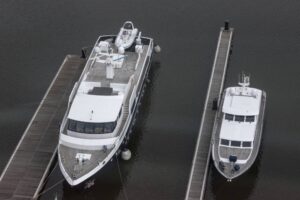
Houseboats are more affordable than yachts. One reason is that they are easier to maintain and are not sailed frequently. A yacht is more expensive because of its commercial use. Plus, the maintenance on a yacht is more tedious due to its high-class build and luxurious features aboard.
Yachts are usually priced around $300,000 to one million dollars, whereas you can buy a houseboat for as low as $15,000.
Size and Appearance
One major difference between the two is in appearance. Houseboats usually look like houses floating in the water, while yachts look like small cruise ships. Yachts are faster and more appropriate for sailing because of their planing hulls. On the other hand, houseboats only have flat hulls that’s why they’re mostly stationary.
Both are big enough to live in, but typical yachts are more cramped on the inside than houseboats, which is why they’re used mostly for recreation.
Purpose and Intended Use
Yachts are more luxury boats or non-recreational vessels. They are typically known for their speed, beauty, and other luxurious features. Plus, they are more famous for formal events, parties, and oceanic relaxation.
Houseboats are vessels with basic features that are only needed for comfortable day-to-day living. Because of their flat hulls, houseboats don’t move as fast in the water and might require more fuel to go from one place to another. This is why most houseboats are stationed permanently in marinas. A houseboat can accommodate one or more families depending on the vessel size. If you ask around in areas with houseboats, you’ll find out that some families have lived in their houseboats for generations.
Still, houseboats are also great for commercial use. After all, they were originally designed for that. If you don’t plan to live in a houseboat, they can make great restaurants or cafes in the marina. But for commercial use, yachts are the better investment. You can host parties or events, and with their mobility, you can take your business anywhere.
Houseboats typically have a much larger living space than yachts . They feature amenities that are great for living, like bedrooms, an indoor kitchen, and bathrooms. In marinas, other houseboat owners create a sort of tight-knit group with each other, so if you plan to live in one, expect friendly neighbors to socialize with.
A yacht is too big for one person, financially and space-wise. Plus, yachts won’t be able to provide enough space for a family. So houseboats are more practical if you’re planning to live in such a vessel. However, expect to invest in insurance eventually to cover for damages or break-ins that may happen in your houseboat.
Maintenance
Both houseboats and yachts experience wear and tear that requires routine maintenance to function smoothly. When it comes to houseboat maintenance, one of the essentials that owners can do is make sure that their houseboat sits on a good foundation. House barges are especially susceptible to damage from leaks in the hull. As water seeps into the boat, wood swells, and metal corrodes.
Houseboats generally last longer because they are not made to travel fast or far or need expensive maintenance as most yachts do. Since houseboats are much cheaper to buy, houseboat owners will also save money on houseboat upkeep. Yacht maintenance can cost up to $10,000 a month, while houseboat owners only have to pay for houseboat slip at the marina and fuel.
If you want to give a houseboat a more homey look, it may require a lot of renovations like new flooring, putting up drywall, and setting up bathrooms. Plus, they typically need electric and water supply and sewage. Yachts, on the other hand, are already built with those.
In retrospect, either houseboat or yacht will have the same maintenance cost. Yachts may cost more initially, but they require less upkeep in the long run because you won’t sail your yacht unless needed. On the other hand, houseboats may cost less but may require unexpected costs like foundation repairs.
So, a houseboat or yacht? The answer will depend on your specific needs and preference. It will also depend on how much money and time you will spend on the vessel. Both are excellent investments with each having its uniqueness that you’ll love.
Finally, whether you go with a houseboat or a yacht, you’ll be needing quality marine windows for privacy and safety. Marine windows are durable and intended to withstand strong wind and water splash. If you notice any crack in your boat windows, look for the best replacement in the market today.
Motion Windows of Peninsula Glass offers high-quality marine glass windows that are customizable to fit any size of boat window.
So if you need a new marine glass window for your houseboat or yacht, call Motion Windows and get a free quotation !
Author: Hai N |
Recent Posts
- Clear Vinyl for Windows: What do you need to know?
- How to Keep Boat Windows from Fogging Up?
- What should you do to avoid colliding with another boat?
- Boat Windows Tips: How to Remove Scratches from Glass Windows
- Can I use Marine Acrylic Glass in Boat Window?

What to know about floating houses and houseboats
Floating houses and houseboats have become popular in recent years, and now that more people have the freedom to work remotely wherever they want, it’s possible that these housing units will see an increase in demand.
Thinking of owning a floating house or houseboat? Want to know what’s the difference and which one is right for you? Here’s what you need to know about floating houses and houseboats before you make your purchase.

What is a floating house?
A floating house is a type of housing that is attached to a dock on the water, which could be a river or lake. The building is an actual house — not a boat at all — and is connected to the local sewer and utility lines. Floating houses cannot move, but they are right on the water.
Designs of floating houses tend to lean very modern with sleek lines and repurposed materials. Some have two stories with lots of big windows to take in the view while others devote a little more space to the deck and patio.

What is a houseboat?
A houseboat is a boat that can allow owners to live aboard them permanently. They do not need to be connected to the local sewer or utility lines. Houseboats have motors, which means owners can move their homes around the lakes or rivers at their discretion.
Difference between floating home and houseboat
The biggest difference between a floating home and a houseboat is movement. While houseboats can move freely, floating houses cannot. They rely on local sewer and utility lines, and they do not have motors built into them. While it is possible to move a floating house, it would be far more difficult than moving a houseboat.
Houseboats also tend to be less expensive than floating homes and a bit smaller, but that, of course, depends on the houseboat. Yachts can be houseboats if they’re big enough, and they’re better equipped to handle rough waters, which regular houseboats are not.
Benefits of owning a houseboat or a floating home
What houseboat and floating house owners love most about their homes is the ability to live on the water and close to nature. For those that love fishing, swimming and nature watching, you can beat the accessibility of a houseboat or floating home. When it’s time for dinner, many owners simply throw a line out their window.
The serenity of nature also draws many to the houseboat or floating house lifestyle. The docks where these owners live are usually away from city noise and traffic, which means they’re quieter and less developed. Much of the natural beauty of the land and water remains intact, so it’s much easier to appreciate wildlife.
Owning either a houseboat or floating house also gives you potential rental income. If you have a permanent home elsewhere, then you can rent out your floating property for bachelor and bachelorette parties, reunions or honeymooning couples. There’s a great market for floating properties, so if you’re worrying about paying for a second mortgage, renting out your new property can help you make up the difference.
Living in a boat: pros & cons
When it comes to living on a houseboat, there’s no denying that the ability to pick and move your home to a new city or town is a major plus. If you’re retired and want to see Virginia or Maryland from a new angle, then owning a houseboat will grant you the freedom to move as you please and see the area from a perspective that you’d otherwise miss.
Unlike floating houses, houseboats need to pay a rental fee when docked in a marina. While some own a slip on their home base docks, it does mean that houseboat owners will have to pay rent when in a new area.
When it comes to rocking, houseboats owners usually feel much more movement than floating house owners. This is because floating houses have a much larger base, so the rocking is more evenly distributed and far less noticeable.
From those looking to downsize, a houseboat will be a better fit than a floating house. Most houseboats can have about two bedrooms at max (unless it’s a yacht), but floating houses can have more bedrooms and bathrooms. That space, however, does come at a premium, so expect to pay much more for a floating house than a houseboat.
Want to rent out your houseboat or floating house near Washington, DC? Contact Atlas Lane to learn how to get started .
Ready to get started with Atlas Lane?
Continue reading.

How to rent out an apartment
7 Important Clauses Landlords Need to Have in their Lease
15 Small Basement Layout Ideas to Maximize Space in Your Home

Let's get started.

Where Residents Experience Home.
Washington, DC Locations
Northern virginia (nova) locations.
They moved into floating homes and houseboats — and discovered a world of adventure and hidden expenses
- Forget buying a home on land — some people are heading for rivers and lakes instead.
- They're investing in floating houses, houseboats, and narrowboats.
- While the lifestyle has perks, it's not necessarily cheaper than owning a house on land.

Moving into their 360-square-foot floating home a year ago was a dream come true for Sarah Spiro and Brandon Jones.
The house, located on Fontana Lake in North Carolina, has loft-style interiors with high ceilings and windows all around.
"I just love that no matter what you're doing, you can look out the window and have this super peaceful view — even if you're just doing dishes," Spiro, 27, told Business Insider.
Spiro and Jones spent $90,000 building their floating home and say it would have been difficult to buy a house on land for that price. They pay a $5,000 annual mooring fee for their floating home.
Now, they can't imagine returning to life on land.
"I guess it depends on the person, but for us, we would never go back," she said. "It beats living on land."
Embracing life on the water
Living on water is big on social media, where it's spawned popular hashtags like #houseboat and #narrowboatlife , and helped push creators like Adam Lind of @adam.floatinghome to extreme visibility.
It's also a part of the alternate living movement that sees people choosing to stay in tiny houses , homes on wheels , or other forms of housing over traditional brick-and-mortar homes.
National data on the number of people who live in floating homes, houseboats, and narrowboats is hard to come by as there isn't a single authority responsible for tracking all these housing forms across the US.
However, regional data suggests the lifestyle is still quite niche.
In 2023, there were 70 floating home sales reported on the Regional Multiple Listing Service, or RMLS, which covers the Portland area and a significant part of northwest Oregon, Portland Floating Homes real-estate broker John McPherson told BI.
In the case of houseboats, US inventory is highest in the cities of Portland and Seattle, with an average of 47 and 23 monthly listings in 2023 respectively, per data provided by Realtor.com.
The cities with the next highest houseboat listings are Scappoose, Oregon, Sausalito, California, and Johns Island, South Carolina — each had between five and 10 houseboat listings per month in 2023, per data from Realtor.com.
Comprehensive data on the trend abroad is similarly hard to find.
The Canal & River Trust, which looks after 2,000 miles of canals and rivers across England & Wales, told BI there are about 34,760 boats along its waterways. Of those, 21% describe themselves as "liveaboard."
A punishing housing market is driving people to alternatives
Elizabeth Earle lives in a narrowboat that she bought for £35,000, or about $44,000, in 2022. She previously told BI's Jordan Pandy that the lifestyle was the least expensive way for her to buy a home in the UK.
"The price for a house in England is a bit ridiculous at the moment," Earle, 34, said. "Even if you're able to save £200 a month, how on earth are you going to save £20,000 towards a mortgage? It feels so unattainable compared to how our parents did it."
Earle's comments echo true across much of her generation around the world.
Millennials are saddled with debt, struggling to build up their net worths , and getting priced out of cities. Some are moving in with their parents because they can't afford to live on their own.
Houses are also getting more expensive . In the US, most major forecasts predict that home prices could rise between 1.4% and 4.1% in 2024.
And while millennials might be suffering the most in the real-estate market, people of all ages are among those seeking out a life on the water.
"What I have observed is that a lot of buyers seem to be in their 40s, 50s, or 60s. Some are in their 70s," McPherson said.
Related stories
It's often people who are downsizing and want to do something specifically for themselves now that they're older — which is enjoy the river, the views, and boating, he added.
"Housing has become increasingly unaffordable for many Americans because of historic high prices coupled with mortgage rates approaching 8%," Daryl Fairweather, Redfin's chief economist, told BI. "This is mainly due to the intense housing supply shortage in the US — we're short millions of homes, which is driving up costs."
A recent survey by Realtor.com also found that more than half of potential home buyers were second-guessing their plans to buy a home, Hannah Jones, a senior economic research analyst at Realtor.com, told BI.
"The relatively high barrier to homeownership may push would-be buyers towards renting for longer or seeking out alternative living arrangements to save money for a home purchase," Jones said.
Hidden costs
But if slashing expenses is the goal, life on the water might not be the answer.
"I wouldn't say that owning a floating house is much cheaper than owning a typical house on land, but it is a much lower-priced alternative to owning waterfront property in Portland," McPherson said.
Home insurance for a floating house tends to be about double what it is for a regular house on land, McPherson said. Most floating-home owners also have to pay a monthly fee to either rent or maintain the slip their house is in.
Additionally, the float — the part of the floating house that's equivalent to a foundation — deteriorates over time, McPherson said.
"Depending on what needs to be done, maintenance could cost around $10,000 or so," McPherson said. If a float is too old, it needs to be replaced — and it's not a do-it-yourself kind of job.
"Currently, to replace a float it could cost approximately $80,000 to $130,000 — or even more, depending on the size of the house and what exactly needs to be done," he said.
Laura Woodley, 35, took out a loan to buy a narrowboat in the UK in 2020. Her repayments cost about £650, or $810, a month.
"Many people think that I'm living on a boat to save money, but I actually spend more than I did when I was renting, although I now live alone instead of with roommates," Woodley previously told BI.
A boat license, heating expenses, and maintenance costs add up to roughly another £425 a month — and that's without emergency payments.
"A couple of winters ago, half of my chimney fell off, and my heating broke, and I had to pay £700 to fix it," Woodley said. "Living on a narrowboat is not as simple as having a set of fixed monthly expenses like you would if you lived in a house."
Value in the lifestyle and the community
Money aside, the lifestyle has perks.
"It's a very serene and calm way of life compared to downtown," Kate Fincham, 35, told BI . Her houseboat is moored in Bluffers Park Marina, about 30 minutes from downtown Toronto.
"There are lots of woodlands and trails by the water, and two beaches as well," Fincham added. She spends her summer mornings kayaking on the lake.
Lily Rose, 32, lives on a houseboat on Lake Union in Seattle with her husband Dylan.
"Having ducklings and goslings pay us visits in the late spring and early summer months has been a big highlight of our time on the houseboat," Rose said.
"We enjoy taking our paddleboards out for a quick lunch break during the week or cruising down to the south end of Lake Union in our little 11-foot Boston Whaler to watch the Duck Dodge sailboat races in the summer," Rose added.
For Fincham, there's value in the community and freedom she's found through the houseboat lifestyle.
"I think it's always kind of inspiring for people to think, 'Oh, I don't have to save up to buy a condo,' or whatever. There are alternate avenues and ways to live, too," Fincham said.
Houseboat life has helped her bond with her neighbors.
"The neighbors, we're all very close, and there are always activities and game nights, movie nights, or people going for dinner together," she said. When she lived in a house downtown, she barely knew the people who lived around her.
"You need to be able to roll with the punches," Fincham said. "Sometimes it's not the easiest way of life, but I always think, for me, it's the best way of life."
Watch: Inside the most expensive neighborhoods of Singapore, home to TikTok CEO Shou Zi Chew
- Main content
Yacht vs Boat: Definitions and Key Differences

Yacht vs. boat: the difference between a yacht and a boat is that a yacht is a larger boat that typically includes sleeping quarters such as a cabin, a galley or kitchen, and a bathroom with a shower and toilet. A boat generally does not include any of these amenities, or if it does, only contains a subset of them.
Merriam-Webster defines a yacht as any recreational watercraft, used for sailing or motor cruising, and a boat as a small vessel used for travel on water.
To further delineate the differences between a yachts and boats, in this article we will compare and contrast each term with specific examples and use cases.
Yacht vs Boat Comparison
All yachts are boats, but not all boats are yachts. In the table below, we’ve compiled a list of the most significant differences between yachts and boats:
Yacht vs Boat Sizes

When most people imagine yachts, they tend to think of super yachts owned by billionaires such as Bill Gates, Jeff Bezos, and Larry Ellison. In reality, however, most yachts are between the ranges of 32 ft. and 50 ft. in length, and are owned by normal people who happen to enjoy boats enough to keep them around.
If you’re surprised by this fact, think about it: how many marinas have the facilities to host even a single 100 ft. luxury super yacht? The reality is that most don’t, and most wouldn’t want to. If you go to your nearest marina, you’re likely to find that the vast majority of yachts range in size from about 28 ft. to 60 ft.
When people think of boats on the other hand, they could imagine something of any size. Boats come in all sizes, ranging from inflatable paddle boats, up to and including the largest yachts, since boats technically include all yachts. When comparing the two, people tend to think of boats as smaller vessels, below 28 ft. or so in length, without a cabin and with little if any storage below deck (for example, fishing boats, bass boats, sport boats, etc. fall into this category).
Yacht vs Boat Amenities
It should come as no surprise that yachts have significantly more features and luxury amenities than what most people think of when they think of boats. Yachts are large enough to live on, while boats that aren’t yachts are typically used for day trips on the water.
- On a yacht, the cockpit is typically covered by a bimini top, dodger, or some sort of overhang that protects the captain or boat driver from the sun.
- On a non-yacht boat, there is often no sun protection, with the exception being on the higher-end sport boats.
- Seating arrangements on a yacht typically include wide seating with a full dining table or fold-up table in the middle, depending on the size of the deck. On larger yachts, there may be seating near the bow as well. Even the smallest yachts can accommodate up to 4 people in the cockpit quite comfortably.
- Seating on a non-yacht boats typically includes at least the captain or driver’s seat, as well as seating at least one other person. For recreational boats, such as sport boats or pontoon boats, seating can accommodate up to 15 people.
- On a yacht, a cabin is a given, and typically includes features such as a salon (main living area), cabin, galley, and head (bathroom).
- On a non-yacht boat, the cabin is non-existent, and we consider this to be this one of the biggest differentiators between yachts and non-yacht boats.
In conclusion, when it comes to yachts vs boats, it’s clear that yachts are typically larger vessels with creature comforts such as sleeping quarters, heat and air conditioning, bathroom(s), a galley, as well as luxury amenities. Boats can technically have these features, but at this point, we’d just refer to it as a yacht. Maybe the biggest takeaway here is don’t be caught telling your crush you have a yacht, when in reality it’s just a boat (trust us on this one).
Listing your boat with Yachtlify provides several unique benefits, including:
- List once, post on multiple platforms (Yachtlify.com, Facebook Marketplace, Instagram, and others).
- Schedule showings and sea trials with our calendar and reminders.
- View listing engagement analytics across platforms.
- eSign, state forms, and Coast Guard forms to manage closing documentation in once place.

RVing or Boating? 19 Main Arguments (Explained)
I’ve dreamed of living in an RV as well as living on a boat for many years. Luckily, I’ve had the chance to spend time in both and I’ve been out on the water almost as much as I’ve been out in the woods.
Writing for this website has also given me the chance to do extensive research on RVing, boating, and living in small spaces in general.
In this post, I’ll talk about RVing vs. boating. I’ll talk about some of the things to consider before deciding on one or the other.
Table of Contents
The Advantages of RVing vs Boating
Let’s start with the RVs and why RVers tend to praise their way of life over boating.
1) You Don’t Need a Special License (Usually)

Most motorhomes and towable campers do not require any special licensing requirements. If you have a drivers license, you can legally drive a motorhome or tow a small to a medium-sized camper.
This isn’t true for every state, however, so you may want to take a look at our page on RVs & Licensing Requirements to see what your state requires.
All but seven states have a mandatory boater education law.
While the boater education law does not always call for a special license, it does require you to take a test and complete a course. The state of Alabama, as well as some other states, actually make you get a special license as well.
For example, the state of New Jersey requires you to get a license to operate motorboats and jet skis on non-tidal water. To get this license, you have to complete a course, take a test, and pay an $18.00 licensing fee.
2) An RV May Be Safer to Live In
When you live in an RV, you don’t have to worry about whether or not it is going to sink while your sleeping. You also don’t have to worry about a large wave knocking your RV over while you’re camped somewhere.
When you live in a boat, you do have to worry about situations like these.
Another factor is that you never have to worry about falling off of your RV and drowning. Personally, I’ve never been out to see in a boat without other people, but if I did, I’d probably be nervous about going overboard and not being able to get back to my boat.
On the other hand, some might say that boats are safer to live in because you don’t have to worry as much about traffic accidents.
Also, I’ve never heard of a person being attacked by a bear while sleeping in their boat at sea.
3) You Don’t Have to Learn As Much
Learning how to RV is much simpler than learning how to operate and live in a boat. This is especially true if you’ve chosen a motorhome to live in.
Smaller motorhomes drive like large vans and even a towable camper isn’t that difficult to get used to.
Here’s everything you need to know in order to be a great RV driver .
Also, if you’re out on the road and you forget how to do something it is much easier to pull over and ask someone than it is to ask for help while out to sea on a boat.
Even navigating with an RV is much easier than navigating in a boat. If you’ve ever driven anywhere before, you’ll know how to follow the turn-by-turn directions that your GPS gives you.
However, you may have some trouble navigating through different waterways the first time you set out.
Remember, when you’re far out to sea, there aren’t any street signs.
4) Less Risk in Buying a Used RV
Buying a used camper is less risky than buying a used boat. The reason for this is that a used camper doesn’t have many moving parts.
You can read here about how well an RV keeps its value over time . Even though it’s not impressive, I bet it’s better to sell a used RV than a boat.
In fact, the only parts you truly need to worry about are the axels, brakes, and tires. Most of the other components will not pose a safety risk.
With a boat, you run the risk of having your motor die while you’re out at sea. I vividly remember my parents taking me out on their used boat for the first time when I was a kid.
We went out into a channel in the back bay and when we were on our way back, the motor died.
The trip ended with a passerby towing us back to our dock. Before we went out on the boat again, my parents bought a new motor.
5) Less Expensive to Buy
RVs generally cost less to buy than boats do.
You can easily buy a small travel trailer that you can live in for less than $15,000.00. A new houseboat will easily cost you five times that much.
In fact, even a small houseboat from the 1980s might end up costing you over $25,000.00 to purchase.
6) Less Dependant on the Weather

While it isn’t fun to go RVing in the rain, you probably won’t end up getting lost at sea if you do. The weather can quickly make boating more dangerous than RVing and experienced boaters know this.
For this reason, most boaters always carry a weather radio with them and they check the forecast before they head out onto the water.
Even if you’re docked, the weather can make boating more dangerous than RVing.
For example, if you’re docked someplace for the winter, you’ll have to walk across an icy dock to get on and off your boat.
Slip on a dock and you could end up falling into the icy water.
This could send your body into shock and you might lose your life before anyone has a chance to rescue you.
You won’t find too many issues like this while climbing in and out of your RV, (unless you park next to a dock of course).
7) Easier to Telecommute
When you’re in an RV, it is easy to drive to a place that has good cell phone reception and a solid wifi connection. Boaters don’t always have this luxury.
If you’re a telecommuting boater, you may have to search hard to find docks that offer wireless internet connections. Or you will need internet over satellite (which is expensive and typically pretty bad…)
Even if you find yourself RVing in remote areas, you can often enhance your Internet capabilities through satellites and range extenders.
While some of these tools do work on boats, they are much more reliable and easy to use in an RV. In fact, many new RVs now come with built-in range extenders so you may not even have to buy any additional equipment to get great wifi.
8) RV Life is Closer to Life in a Brick and Mortar Home
When an RV is parked somewhere with full hookups, it’s basically like living in a small version of your apartment or house. The appliances are often very similar and the plumbing works the same way.
If you wake up and decide you want to go for a quick walk, you won’t have any problem doing so.
When you live on a boat, you may be out at sea or in the middle of a lake or river when you wake up. While this can be a great experience, it can also be a little inconvenient.
If you want to take a walk or buy some milk, you’ll have to travel back to land before you can do so.
9) Shorter and More Forgiving Learning Curve

The items in an RV all have names that you’re probably already familiar with. A bedroom is called a bedroom, the left side is known as the left side, and the driver’s seat is the driver’s seat.
In a boat, a bedroom is called a berth, the left side of the boat is called the port side, and the driver’s area is called the helm.
Even driving a boat is much different than driving an RV.
You don’t have any brakes to fall back on and the water will push you where it wants when you’re not actively moving forward.
Parking is easier in an RV as well. With an RV, you just need to make sure the spot is large enough for you to park in. With a boat, you have to make sure you get your boat to the dock before the tide goes out. My cousin once made the mistake of failing to get back through the waterway before the tide went out and he ended up stuck in the bay until the tide came back in.
While RVing, you will have to learn a few new skills before venturing out but making mistakes is a little easier. For example, if you forget
10) You Won’t Get Sea Sick
Park an RV and it stops moving.
If it keeps moving, you’re doing something wrong. Anchor a boat and it will continue to move and sway with the water. Some people find this soothing and find it easy to fall asleep on a boat, others get seasick.
Luckily, I’m one of those people that finds it soothing, but I’ve been on many fishing trips with people that spent the trip throwing up over the side.
It did not look fun.
The Advantages of Boating vs RVing
Let’s now switch to boating and list the reasons why some people swear to boat instead of RVs.

11) More Places to Explore
71% of the planet Earth is made up of water.
If you live in a boat you’ll have access to much more of the world than someone with an RV has.
Boats can travel overseas by themselves whereas an RV will actually need to be transported to places overseas on a boat.
For people living on an island like Hawaii, a boat will give them much greater freedom than an RV ever could. The same holds true for any other island nation or any person trying to visit different islands on a regular basis.
12) More Solitude
Camping out on BLM land in a small RV or overland vehicle can be a solitary experience. However, it is much easier to run into someone while out on BLM land than it is to come across someone while out in the deep blue sea. If you’re looking to be alone with the water and the stars, taking a boat into the ocean is surely one of the best places to do it.
13) You Get to Fish and Crab All the Time
An RVer has to get out of their RV to go fishing or crabbing. Fishing becomes its own sort of side trip that one takes while they are out RVing.
When you’re on a boat, you can fish all day long without ever leaving your home.
If you want fresh fish, all you have to do is catch it and cook it. You can’t get much fresher than straight off the line.
14) Fewer Bugs (Most of the Time)

Docks and back bays can be havens for insects like flies and mosquitos.
However, camping in a wooded area also has these insects. On top of these insects, you have to deal with ticks, roaches, spiders, and a whole host of other bugs that can easily crawl into your RV with you.
Set up camp out in the desert and you’ll also have scorpions to deal with.
15) More Opportunities to Swim
Many houseboats have swimming decks that you can use to jump right into the water from. In fact, some houseboats even have waterslides built right onto them.
Whether your in a bay, a river, or a lake, you’ll find that the opportunities to go swimming are endless.
Other water recreational opportunities are also easier to come by when boating. For instance, launching a kayak is simply a matter of walking from your bedroom to the back of the boat.
Want to go waterskiing or kneeboarding? Just throw your skis on and jump in the water.
16) No Need for a Base Camp
When you live on a boat you really don’t have to set up a basecamp as you might do in an RV. For example, many people use their motorhomes to drive someplace they’d like to visit and then they get out of it and use their tow car to explore the area.
In this case, the RV is used only as a place to sleep.
With a boat, oftentimes traveling is the entire focus of the trip.
People head out onto their boat to enjoy the act of sailing or just relaxing on their sun deck while out at sea.
17) More Space
An RV must adhere to road restrictions. This means that it can’t exceed a width of 8.5′ wide. A very large RV or motorhome may reach lengths over 40′ but in most cases, a typical RV will be between 25′ and 35′.
Houseboats, on the other hand, are usually much larger than this.
Even a small houseboat is usually over 30′ long and 14′ wide. This provides much more space to live in and more opportunities to have a layout that feels more like home.
Not only this, but many houseboats have multiple floors built into them.
A medium-sized houseboat can easily have up to 4 floors so liveaboards usually have ample opportunities to get away from each other.
For people with deep pockets, the size of a houseboat can become enormous. I’ve seen houseboats that have their own swimming pools built into them.
You’d really be hard pressed to design a liveable and driveable RV with a large swimming pool built into it.
18) No Gray Water Tanks
RVs usually use two different tanks to get rid of their waste. The black water tank stores their sewage while the gray water tank stores water from the sinks. Here’s exactly how the grey and black water tanks work .
Boats only have black water tanks. The water from the sinks goes into the ocean.
This means that boaters don’t have to spend as much time and energy draining their gray water tanks.
Because black water tanks usually fill up more slowly, a boat owner doesn’t have to make as many trips to get their tanks pumped out.
19) Less Traffic
Do you hate this view as much as I do?
Then you know what I mean…

Have you ever sat in bumper-to-bumper traffic for hours on end? Sitting in traffic isn’t any fun in a car and it is even worse in a truck that is pulling a large camper behind it.
Driving through heavy traffic becomes more difficult in a big vehicle and it can quickly burn expensive gas.
In a boat, you really don’t have these issues. Near land, you’ll be traveling slowly but you’ll usually be able to move at a steady pace.
Out in the ocean or in a deep waterway, you might find that you never encounter another boat at all.
20) Autopilot Works!
While you’re away from other boaters, you can turn on your autopilot system.
This system basically drives the boat for you and your only task is to watch out for other boaters. When you do notice another boater, you can quickly and easily take the controls back from your boat to steer it safely away.
I believe that one day you won’t have to drive your RV but until this day comes, boaters will have the edge when it comes to driving.
RVing and boating are two different things and they can both be a lot of fun.
If you’re new to both of them, why not try one for a while and then switched to the next one. Many boaters have started out in RVs and vice versa so don’t feel like you have to limit yourself to one over the other.
Click to share...
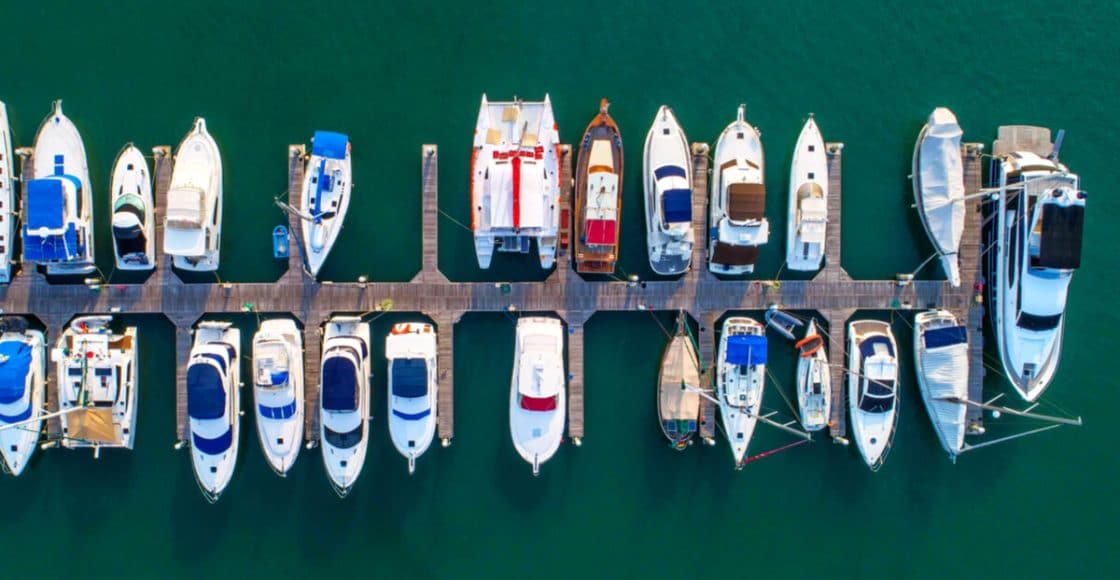
Yachts vs. Boats: What are the Differences?

Table of Contents
Many people use the words “boat” and “yacht” interchangeably, and some lean on the latter to make their ride sound more impressive. But what are the key differences between boats and yachts?
First, let’s look at some broad definitions of a boat, a yacht, and other related vessels.
- “Boat” can refer to just about any kind of vessel— towboat , fishing boat , center console , houseboat , and so on.
- “Dinghy” designates a small boat with a human or wind means of propulsion including a rowing dinghy or sailing dinghy. It also refers to a tender to a bigger boat or yacht.
- “Ship” is a large commercial boat, often used for distance travel and transport of goods or passengers – cruise ship, container ship, etc.
- “Yacht” is typically a larger boat with luxury amenities used as a recreational vessel— motor yacht , sailing yacht .
- “Superyacht” is a large yacht and is often also called a mega yacht . The delineation used to be at 80-feet but again, with today’s size creep, anything under 100 feet would just simply be called a yacht.
So, yacht or boat? Let’s dive deeper into the elements that differentiate a boat from a yacht.
Own a Boat or a Yacht? Learn How to Offset the Cost of Ownership by Listing on Boatsetter
Size of the Vessel
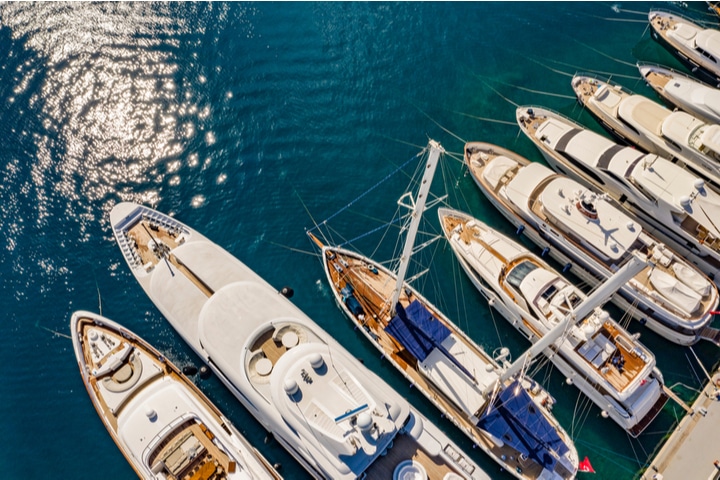
Some place a hard line at 35 feet. Below that, you have a boat and above, it’s a yacht. However, that’s an artificial differentiator.
Just 30 years ago, a 30-foot boat was considered large and could have been a yacht but as recreational boats grow longer, the term yacht has been pushed up the scale.
That said, a well-kept 40-foot boat designed for recreation can technically still be called a yacht (although larger vessels are likely to cost more, price isn’t a good indicator of yacht status primarily because it fluctuates with brand, age, and amenities).
Check out local yacht rentals near you to understand how size plays a difference.
What it’s Used For
A yacht is a vessel designed for recreational purposes. It generally operates on open waters (rather than small lakes or rivers) and has accommodations for overnight guests.
A cruise ship, on the other hand, accommodates a large number of passengers in a commercial setting whereas a yacht carries a smaller number (of paying or non-paying) passengers for private recreation.
Onboard Technology
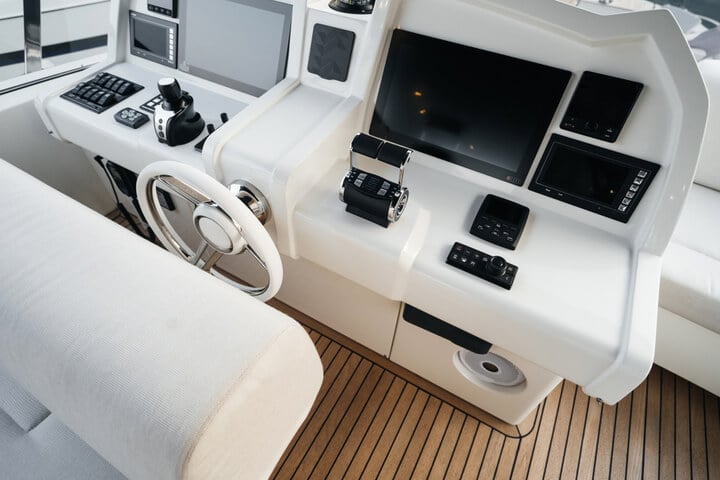
Advanced technology for navigation, communications, and system operation as well as redundant systems for safety can be found on a yacht that is likely to venture farther.
Again, there are caveats because today’s towboats that are fun day boats also feature technology such as GPS and digital switching that integrates many electrical and electronic features.
Propulsion Types
This is a tricky one. “Yacht” comes from the Dutch word “jaght” which referred to a sailing vessel that was used by the navy to capture pirate ships and later for recreation by the affluent.
Today, a yacht can be a large sailing vessel or a motor yacht. All larger yachts will have a motor for propulsion whether they have sails or not. Sailboats by design have smaller motors so trying to put a horsepower minimum on yacht propulsion is simply inaccurate.
Some define a yacht as having multiple crews to operate the vessel and tend to passengers or guests. The larger the yacht, the more crew will be required to navigate, maintain and service the vessel. That said, a couple who owns a 50-footer can call their boat a yacht although it’s owner-operated.
Luxury and Amenities
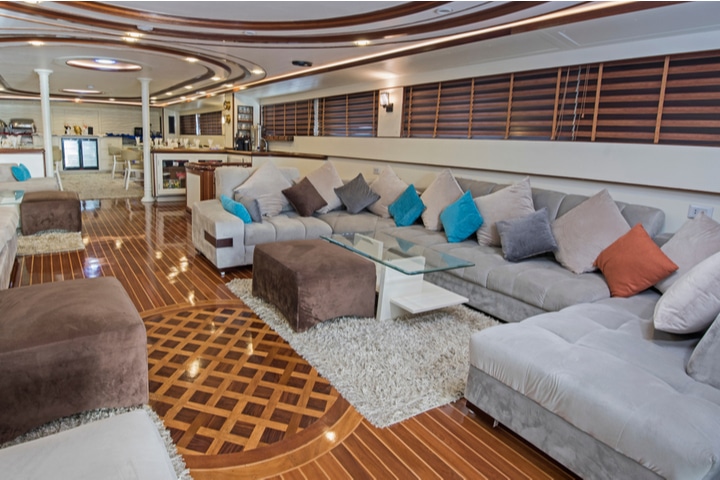
This is perhaps the best measure of a yacht. If the vessel offers accommodations, a galley , a head , and is luxurious in its presentation, it’s most likely a yacht.
That said, there are lots of center console fishing boats and towboats that are pretty nicely equipped these days and they wouldn’t be called a yacht.
All yachts are boats, but not all boats are yachts—and the lines are blurry. The word yacht elicits images of posh seafaring experiences while a boat evokes ideas of fun and perhaps work. Do some research to learn what size and type of boat or yacht is best for you .
To a degree, the point at which a boat becomes a yacht is in the ear of the beholder but if you focus on size, amenities, and the type of use, you’ll be able to discern the difference. Then all that remains is to find a way to spend time and have fun on any kind of vessel.
Browse All Available Boat & Yacht Rentals Across the Globe

Zuzana Prochazka is an award-winning freelance journalist and photographer with regular contributions to more than a dozen sailing and powerboating magazines and online publications including Southern Boating, SEA, Latitudes & Attitudes and SAIL. She is SAIL magazines Charter Editor and the Executive Director of Boating Writers International. Zuzana serves as judge for SAIL’s Best Boats awards and for Europe’s Best of Boats in Berlin.
A USCG 100 Ton Master, Zuzana founded and manages a flotilla charter organization called Zescapes that takes guests adventure sailing at destinations worldwide.
Zuzana has lived in Europe, Africa and the United States and has traveled extensively in South America, the islands of the South Pacific and Mexico.
Browse by experience

Explore articles
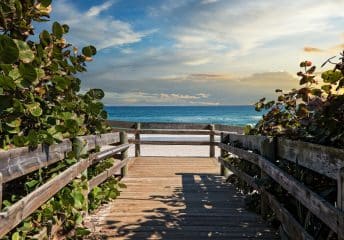
5 Best Beaches in Melbourne, Florida

A Guide to Lake Lewisville & Party Cove (Texas)

Things to Do When Visiting Daytona Beach, FL

2022 Holiday Lighted Boat Parade Schedule
- Pontoon Boats
- Personal Watercraft
- nauticalknowhow
- Nautical Knots
- Tools and Calculators
Yacht vs Boat: What’s the Difference?
You may be surprised to learn that the difference between a yacht and a typical boat is not as easy to figure out as you’d think. This is thanks to the fact that there’s no specific definition for what a yacht actually is. In general, and as most people commonly use and understand these words, a yacht is a fast, often luxurious vessel used for recreational purposes. A boat, on the other hand, is typically a smaller vessel and it can have many purposes from recreation to fishing to rescue and more.
Let’s get into some of the specific differences between yachts and boats to get a better idea of what each of these admittedly general terms is trying to refer to.
What is a Yacht?
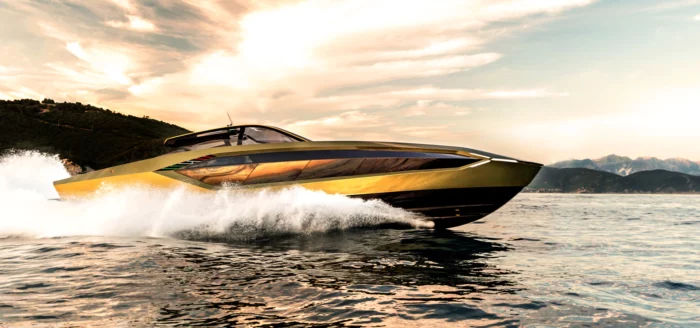
Yacht comes from a Dutch word jaghte , itself from the word jaghtschip which means “fast pirate ship.” That gives you an idea of where people’s heads were at when yachts first came on the scene. These days, the pirate part isn’t really involved but you do tend to expect a yacht to have some speed. Not that these are necessarily speed boats all the time, but there are racing yachts out there that people use exclusively for that purpose.
Because there is no specific definition for the word yacht in modern usage, you have to play it by ear a little bit. It’s one of those words that we all know what it means, even if we don’t have a proper, set in stone definition.
In general, and for most people, a yacht is a large recreational boat, capable of reaching high speeds and noted for its luxury and features. So what does any of that mean?
In terms of size, most people but not all would consider a yacht to be a boat that has reached at least 78 feet. Some people would acknowledge smaller vessels, as low as even 33 feet, as yachts, but this can be hotly debated even among yacht makers and yacht charter companies.
What is a Boat?

One of the oldest words in any language, boat can be traced back through Middle English to Olde English to proto-Germanic to the proto-IndoEuropean word “bheid” where it may have originally meant “to split” or something along those lines. That would have referred to simply splitting or hollowing wood to make a boat. So, by that definition, a boat is incredibly loosely defined.
In modern understanding a yacht is a boat but not all boats are yachts. Consider boat more of an overarching term like automobile while yacht is like an SUV. There are lots of other automobiles and SUV is just one kind.
Usually when people talk about boats today they mean smaller vessels. At some point, large boats become ships, and potentially even a yacht. Smaller boats could be anything from a fishing boat to a jon boat to a sailboat , a bass boat , catamaran , pontoon boat and more. Those boats often have very different forms and functions which allow for a heck of a lot of variety and usage.
Yacht Size vs Boat Size
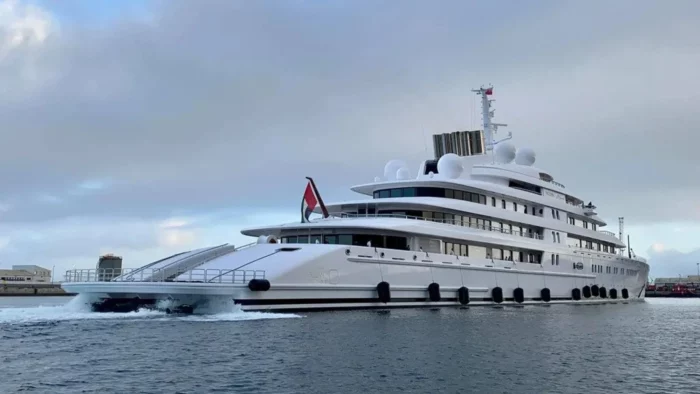
As we mentioned above, people have different opinions about how big a yacht has to be. The bare minimum seems to be at least 33 feet. That said,I have even seen smaller boats called yachts but let’s say, at a minimum, any vessel under 30 feet will always be a boat of some kind and would rarely if ever be properly called a yacht.
Larger boats exist and are not yachts, of course, but these can be sport fishing boats, catamarans, even large pontoons, houseboats and more.
Yachts can start at that low range and get up to incredible sizes which we will touch on in a moment. The largest yachts can get close to 600 feet.
Mega Yachts vs Larger Boats

Once a yacht hits 120 feet people often call it a super yacht. There doesn’t seem to be an easy to find historical reason why 120 feet is the cut off that makes a super yacht. As yachts grew even larger, 200 feet became a sort of milestone for where a superyacht became a mega yacht. And nowadays, with even bigger yachts available, 400 feet is where the cut off often begins for yachts known as gigayachts.
Now, when it comes to large boats, here’s where things get fuzzy. You can find sport fishing boats that are over 120 feet, or sailboats that reach the same length and much bigger. But these are often also called yachts. Sailing yachts, sport fishing yachts. So there’s a line there that boats can straddle even if, under a certain length, the same boats wouldn’t be considered yachts.
Part of the transition from boat to yacht at large sizes comes from the fact that a massive boat is obviously expensive which means more luxury features are likely to be included which means it’s more likely to be considered a yacht.
But large commercial vessels, military and law enforcement vessels, and some search and rescue vessels used by government agencies or private companies can also reach lengths of 60 feet to 100 feet and more and these would obviously never be called yachts. It’s that key feature of being used for recreation that you need to factor in.
Yacht Engines vs Boat Engines
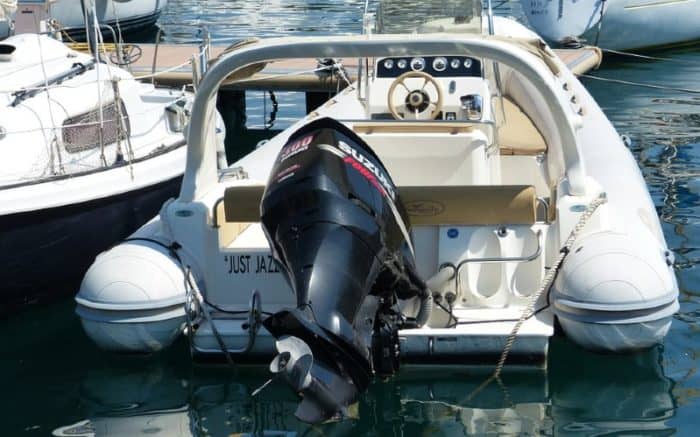
Obviously a sailing yacht won’t factor in here but motor yachts and hybrid yachts have very powerful engines because yachts tend to have a much higher gross tonnage than your average boat of even the same length. Keep in mind that some yachts, especially mega yachts, may have up to seven decks. You need a lot of power to keep that moving. Some of the biggest yachts in the world have a fuel tank capable of holding up to a million liters. That’s going to leave your normal outboard motors in the dust.
Boat Crew vs Yacht Crew

Yacht crews are often found wearing uniforms and have specialized training not just to run the vessel but also to see to the needs of the guests. Since yachts are often characters, the guests on board are like guests at a hotel and treated as such. Large yachts are a lot like a private cruise service.
Boats don’t always even need a crew and if a boat does have a crew it probably means the boat is a commercial vessel of some kind – think of a commercial fishing boat, for instance.
Boat Amenities vs Yacht Amenities

Here’s a place where boats and yachts often part ways significantly. There are some pretty luxurious houseboats and pontoons and cabin cruisers out there to be sure, but when you look at what you can get on a megayacht there’s barely a comparison.
The most expensive yachts have multiple helipads, swimming pools, tender garages that contain things like jet skis, gyms, high tech yacht electronics, massage rooms, bars, movie theaters, mini subs, discos, you name it. These really are like private cruise ships.
Now obviously it’s not fair to compare a 12 foot jon boat to the 600 foot Azzam yacht but these are clearly as different from each other as any two things can be. Yachts are known for their luxury and they can truly push the limits sometimes.
Yacht Locations vs Boat Locations
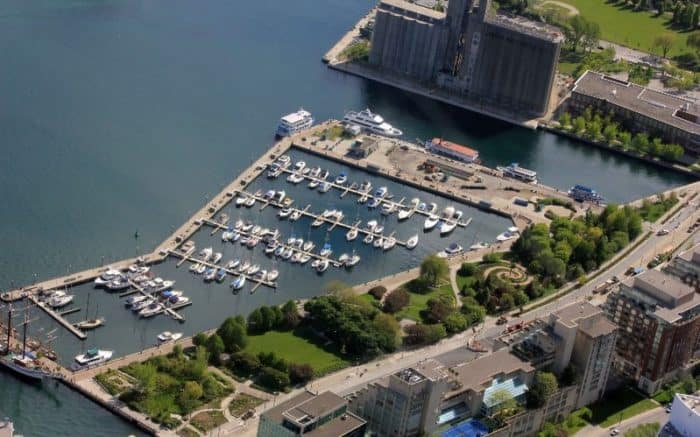
Smaller boats are obviously more capable of handling coastal and inland waters than any yacht you’re likely to find because that’s what they’re meant for. Yachts are typically, but not always, found in saltwater, usually around vacation destination areas like the Bahamas, the Mediterranean, Florida, tropical islands and so on. Boats are at home anywhere you find water.
There are definitely yachts on inland lakes like the Great Lakes, but they are decidedly less common.
Yacht Price vs Boat Price

Here’s where things get really different. You can get a little fishing boat for a few hundred dollars if you want. The Eclipse yacht cost $1.5 billion. So that’s the range we’re dealing with in terms of yachts vs boats when it comes to cost. If you try to meet in the middle with a 33 foot sport cruiser boat you might pay $200,000. But the average price for a yacht in 2021, and this means a vessel between 56 feet and 79 feet, was $1.1 million.
The Bottom Line
All yachts are boats but not all boats are yachts. In general, a yacht is a larger vessel that is used strictly for recreational purposes. It’s defined by its speed and its luxury and is often at the higher end of the price range. You tend to find yachts in popular vacation spots and they come in at an average price over $1 million.
Boats are generally smaller vessels and can be used for everything from fishing to cruising to commercial, police boats and military purposes. They can be extremely simple and, as a result, also incredibly cheap compared to yachts as well.
My grandfather first took me fishing when I was too young to actually hold up a rod on my own. As an avid camper, hiker, and nature enthusiast I'm always looking for a new adventure.
Categories : Boats , Yachts
Leave a Reply Cancel reply
Your email address will not be published. Required fields are marked *
Save my name, email, and website in this browser for the next time I comment.
More in Boats
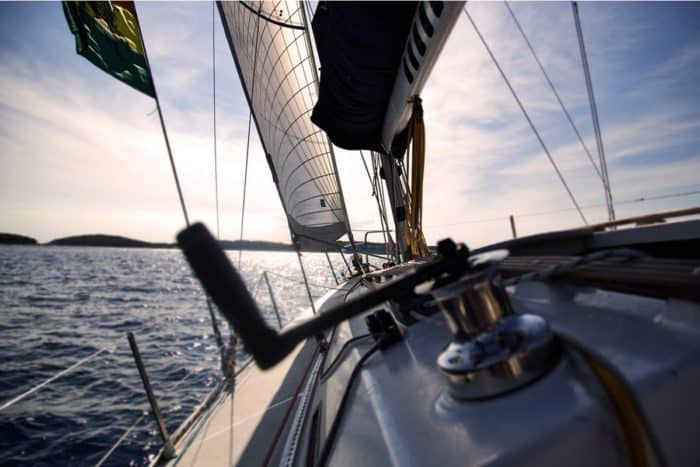
What Is A Gunwale?

131 of the Best Hawaiian Boat Names
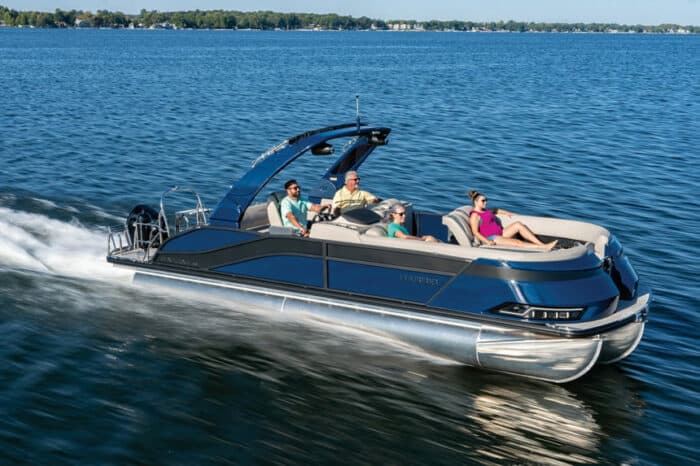
167 Patriotic Boat Names
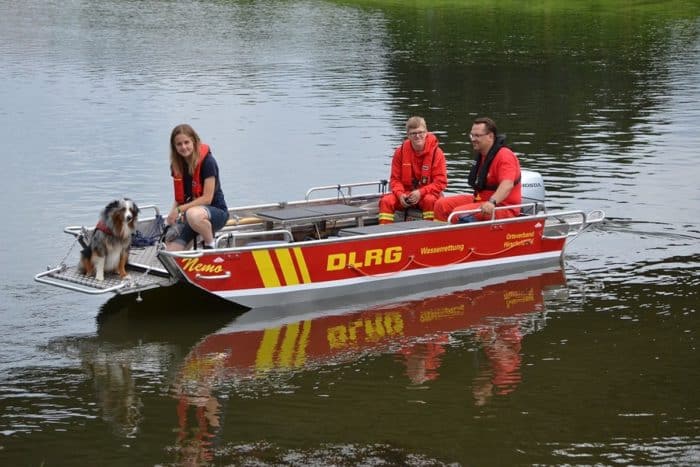
The 138 Best Boat Names for Dog Lovers

The People’s Poncho Review and Ratings

Oru Lake Kayak Review

About Boatsafe
Established in 1998, BoatSafe is your independent guide into the world of boating, fishing, and watersports. We provide expert insights and detailed guides to help you find products tailored to your needs and budget.
Contact Boatsafe
- Address: 4021 West Walnut Street. Rogers, AR 72756
- Phone: (479)339-4795
- Email: [email protected]
Site Navigation
- How We Test
- Corrections Policy
- Privacy Policy
- Terms & Conditions
- Editorial Policy
- Affiliate Disclosure
Our Reviews
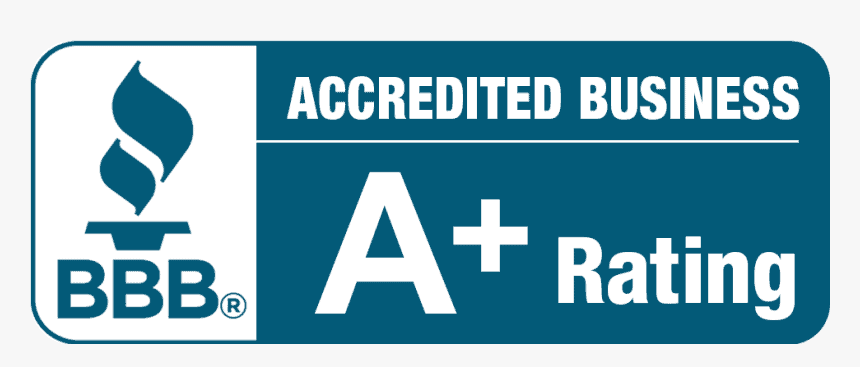
All content is © Copyright 2024. All rights reserved.

Yacht vs. Boat | What’s The Difference?
So, we have boats and yachts. At first glance, they both float on water and seem like a great way to spend a sunny day. But look a little closer, and they begin to show their true colors. Think of boats as the regular bicycles of the sea world: they’re handy, straightforward, and get the job done.
Great for short rides or quick tasks. On the other hand, yachts are like those luxury cars you see in movies. More significant, flashier, and packed with all sorts of fancy stuff. They’re for those who love comfort and style on their sea adventures. While both have charm, they serve different purposes and offer unique experiences. Dive in with us as we explore the watery world of yacht vs. boat !
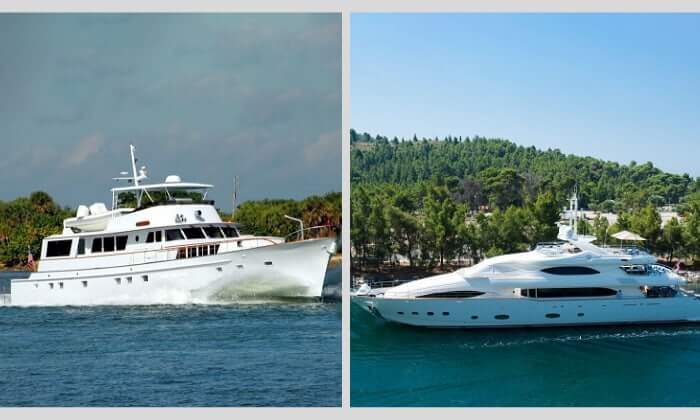
Overview of a Yacht
A yacht is designed primarily for leisure and recreational use, distinguishing it from working vessels like fishing boats or cargo ships. While yachts can be sailed or motor-driven, they are commonly associated with luxury, comfort, and prestige.
What Size Boat is Considered a Yacht?
The classification of yacht vs. boat is more about design and purpose than strict size parameters. However, in general terms, 30 feet (about 9 meters) and longer boats are called yachts.
- Super Yachts : Typically, vessels over 79 feet (24 meters) fall into this category.
- Mega Yachts : These are often over 164 feet (50 meters) and represent the pinnacle of luxury and size in yachting.
Commercial Purposes of Yachts
While yachts are primarily associated with personal leisure, they can also serve commercial purposes:
- Charter Yachts: Many yacht owners lease their vessels as charter yachts, providing vacationers with luxury experiences on the water. Such charters can range from day trips to weeks-long voyages.
- Yacht Races & Events : Yachts, especially sailing ones, participate in races and regattas, which can attract sponsorship and media attention.
- Training & Certification : Larger yachts requiring professional crew leads to commercial ventures offering maritime training, certification, and placement services.
Overview of a Boat
A boat is a watercraft of various sizes and types, designed to float or plane to provide passage across water. Using primarily for recreation, transportation, and specific tasks, boats serve as invaluable tools and leisure companions worldwide. Here’s a deeper look into what boats encompass:
Size and Types:
While there’s no strict demarcation on size, boats tend to be smaller than yachts, often under 30 feet (around 9 meters) in length. Boats come in various designs and serve multiple purposes:
- Fishing Boats : Designed primarily for angling activities, they often have storage, bait wells, and rod holders.
- Sailboats : Relying on sails for propulsion, they come in many varieties, from single-sailed dinghies to multi-mast schooners.
- Speedboats : Built for speed and agility, these are often used for racing, watersports, or leisure cruising.
- Rowboats : Powered by human effort using oars, they’re commonly found in calm lakes and rivers.
- Kayaks & Canoes : Narrow watercraft primarily used in rivers, lakes, and coastal areas.
Usage and Function:
Boats serve a myriad of functions:
- Recreation : From tranquil fishing trips to adrenaline-filled watersports, boats offer various recreational activities.
- Transport : Especially in archipelagic or coastal regions, boats provide essential transportation between islands or short distances.
- Occupation : Many rely on boats for their livelihood, from fishing to tour guiding.
- Rescue : Lifeboats and other specialized vessels play critical roles in rescue operations in water bodies.
- Sport : Boating competitions, from kayak races to sailboat regattas, are famous worldwide.
Sea Vessels Explored: Difference Between The Boat vs. Yacht
1. size: the defining dimension.
Boat: Boats are the compact vehicles of the maritime domain. They typically measure under 30 feet, providing just enough space for basic amenities and functionalities. Yacht: Contrasting starkly with boats, yachts are the giants of the seas. Starting from 30 feet, they often venture into the territory of super-yachts that stretch beyond 200 feet.
2. Propulsion Operations: The Power that Propels
Boat: How do boats move? The answers are as diverse as the boats themselves. Some rely on human power, like rowboats with oars. Others harness the wind using sails. Many modern boats, especially those used for recreation, utilize outboard motors.
Yacht: Yachts present a more complex picture when it comes to movement. Their larger structure necessitates sophisticated propulsion systems.
3. Use: Function Meets Passion
Boat: A boat’s purpose is as varied as its type. Need to fish? Boats have you covered. They also serve specific tasks, like towing or participating in water sports, ensuring a boat for almost every water-bound need.
Yacht: Yachts are less about function and more about experience. Imagine cruising through azure waters, anchoring beside secluded beaches, or hosting lavish parties amidst the ocean’s vastness.
4. Luxury and Comfort: The Glamour Quotient
Boat: Boats are built for a purpose. Their designs are straightforward, keeping in mind the core function. While some modern boats incorporate creature comforts like cushioned seating or basic entertainment systems, they’re not about luxury.
Yacht: Luxury is the essence of a yacht. It’s not just a vessel; it’s a floating piece of art equipped with modern luxuries. Think of gourmet kitchens, state-of-the-art entertainment hubs, jacuzzis with ocean views, and staterooms rivaling five-star hotel suites. Larger yachts may even feature helipads, cinemas, and gyms, making them floating mansions.
6. Price: The Investment Spectrum
The cost comparison of Yacht vs. Boat is as:
Navigating the Importance of Distinction
Why is it so essential to understand these differences? Here are some reasons:
Investment Implications: Discerning between a boat and a yacht helps potential buyers gauge their investment, from purchase and docking fees to long-term maintenance.
Operational Skills: Larger vessels like yachts demand a more profound understanding of maritime navigation. Some regions even mandate professional licenses or crew for yachts, reflecting their complexity.
Matching Maritime Ambitions: Identifying the right vessel type ensures that one’s nautical aspirations — fishing, luxury cruising, or weekend family outings — are adequately met.
Boats vs. Yachts: Insights from the Crew’s Perspective.
For Boat:
Yachts vs. Boats: A Nautical Choice
Deciding between a yacht and a boat isn’t just picking a watercraft; it’s about embracing distinct water-bound lifestyles. This choice goes beyond mere selection—it dives deep into the unique vibes, moods, and values that each vessel radiates—both present enchanting seafaring experiences tailored to individual desires and dreams.
Yachts are synonymous with opulence, style, and the magnetic charm of the open ocean. They offer expansive spaces and state-of-the-art facilities and are perfect for hosting grand get-togethers. When a yacht anchors, it silently broadcasts its owner’s love for deluxe experiences and refined living.
On the flip side, boats resonate with liberty, straightforwardness, and closer communion with aquatic wonders. They’re for those who love the undiluted thrill of water escapades, be it a serene fishing day on a secluded lake or meandering through a winding river.
Yacht vs. boat beckons with the charm of open waters, but they’re designed for different adventures and needs. Think of boats as your go-to for practical tasks or quick getaways, while yachts are all about diving into luxury, relaxation, and unforgettable sea escapades. So when you see a vessel cutting through the waves next time, you’ll know if it’s a simple boat doing its thing or a grand yacht making a statement.
FAQ’s
Q: What Is the Difference Between a Yacht and a Boat?
A: A yacht is a more extensive and more costly form of watercraft than a standard boat. It is frequently utilized for luxury reasons, such as relaxing or sailing around the Mediterranean. In contrast, a boat is a broader phrase that can apply to any watercraft.
Q: When does a boat become a yacht?
A: Yachts are often more significant than other forms of leisure boats. However, there is no hard and fast line between categories. Nonetheless, the widely accepted point at which a boat might begin to qualify as a yacht is roughly 35 feet, but they can easily be more extended.
Q: Is every boat a yacht?
A: While there is no legal criterion for a boat to become a yacht, anything longer than 40 feet might be termed a yacht, furthermore, you will most likely enter the “mega-yacht” or “superyacht” area when you increase in size.
Leave a Comment Cancel reply
Save my name, email, and website in this browser for the next time I comment.

The Key Differences Between a Yacht and a Boat | Yacht vs Boat
Olivia benjamin.
- June 20, 2023

It’s a common misconception to assume that there is no difference between a yacht and a boat, but there are notable differences between these two types of watercraft. Yachts are generally larger and more luxurious than boats, typically smaller and designed for recreational activities such as fishing or water sports.
While yachts and boats serve as leisure vessels on the water, yachts often boast additional amenities like air conditioning, multiple bedrooms, and even hot tubs. Conversely, boats tend to have simpler features, such as a small cabin or storage space for fishing equipment.
Gaining a deeper understanding of these differences can assist you in determining whether to choose a yacht or a boat based on your unique needs and preferences. So, let’s dive deeper into the distinctions between these two types of vessels.
What is a Yacht and What is a Boat?
Boats and yachts are two terms that are often used interchangeably, but there are distinct differences between them. Let’s examine the differences between boats and yachts.
What is a Yacht?
You might think of a yacht as a luxurious vessel often used for leisure activities, like sailing the high seas or throwing lavish parties on board.
Yachts are typically larger than boats and have amenities such as multiple cabins, bathrooms, kitchens, and entertainment areas. They’re designed for comfort and style rather than speed or efficiency.
However, it’s important to note that not all yachts are the same. Some may be motorized, while others require sails to move through the water.
Moreover, there are several types of yachts, including racing yachts, cruising yachts, and mega yachts, with sizes ranging from 33 to over 160 feet. Each type caters to specific preferences and requirements, ensuring a tailored yachting experience.
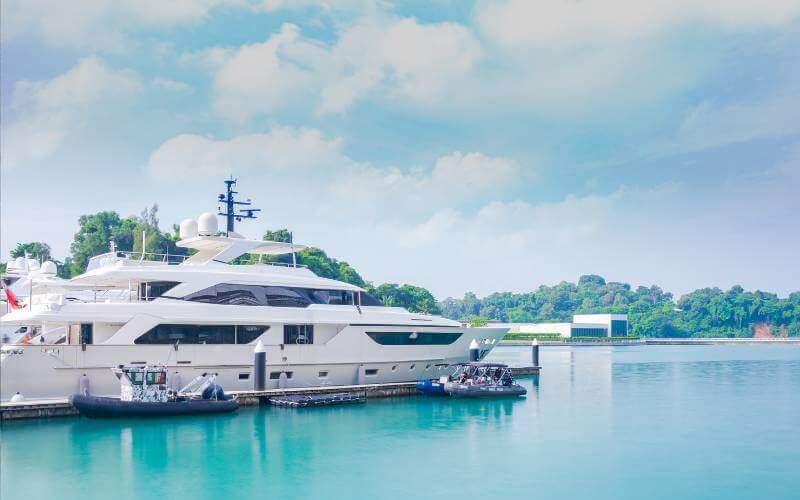
What is a Boat?
A boat is a watercraft primarily designed to float, move, and navigate on water. It is a generic term that refers to a wide range of vessels used for various purposes such as recreation, transportation, military, commercial use, or fishing.
Boats come in different sizes, designs, and types, each serving a specific need. Small boats like kayaks and canoes are used for recreational purposes, while larger boats like tugboats serve commercial purposes.
Whether used for pleasure or work, boats offer great maneuverability. They can navigate in shallow waters and tight spaces and come equipped with navigation and other systems.

Boat vs Yacht | What is the difference between a Yacht and a Boat?
Do you want to know the differences between yachts and boats? Well, there are several key points to consider.
A boat is a generic term used to refer to any small watercraft. At the same time, a yacht is a specific type of boat often associated with luxury and recreational purposes. Many differences exist between yachts and boats, including the use, size, construction of these vessels, and many more.
Let’s explore these differences in detail to help you understand the unique qualities of each type of watercraft.
Difference in Size
Yachts are typically larger than boats, often measuring over 40 feet long. While boats come in various sizes, they often range from around 20-30 feet in length.
Boats are usually smaller and built for leisurely activities like fishing or cruising on lakes and rivers. On the other hand, yachts are designed for luxurious living at sea and are often equipped with multiple cabins, bathrooms, entertainment areas, and even swimming pools.
The size difference between yachts and boats also affects their handling of the water. Due to their large size and complex systems, yachts require experienced crews to operate them. Boats, on the other hand, can be easily handled by anyone with basic boating knowledge.
Difference in Use
While both vessels are designed for water travel but serve very different purposes, boats are typically smaller vessels used for recreational activities such as fishing, water sports, and short trips along the coast. They’re also commonly used for transportation in areas with many waterways.
Yachts, on the other hand, are much larger and more luxurious than most boats. They’re typically owned by wealthy individuals or companies and used for leisurely cruising or entertaining guests. Some yachts can even be chartered for special events such as weddings or corporate retreats.
Difference in Technology
While many boats rely on traditional engines or rowing, yachts often incorporate cutting-edge navigation, communication, and entertainment technology.
For example, some luxury yachts have state-of-the-art autopilot, radar and GPS systems that easily navigate even the most treacherous waters. Additionally, many yachts are equipped with satellite phones and other communication devices that allow passengers to stay connected no matter where they are.
Conversely, boats have basic technology geared towards recreational purposes, like fish finders or depth sounders. Older boats may still use traditional analog instruments for compass bearing and navigation.
Regardless of size or purpose, one thing is clear – technology plays a major role in differentiating between a yacht and a boat.
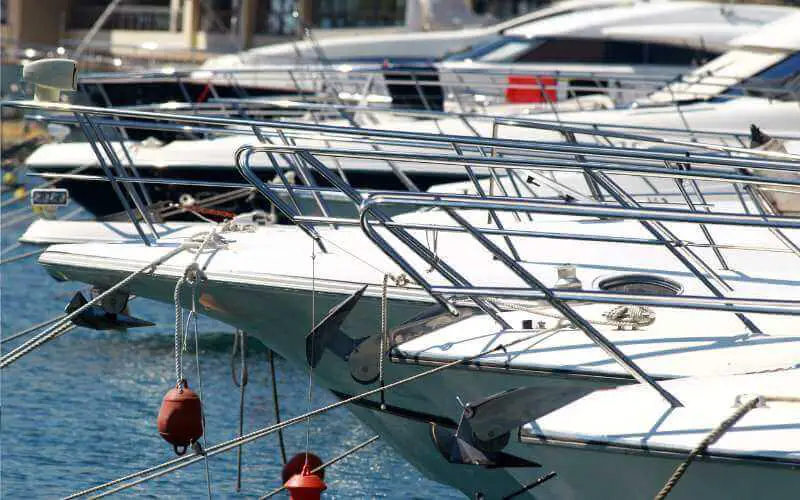
Differences in Power and Propulsion
When it comes to power and propulsion, yachts and boats have some key differences. Yachts are often equipped with larger, inboard engines designed for speed and endurance. In contrast, boats may have outboard motors that are smaller and better suited for recreational purposes.
Another key difference relates to the type of transmission used. Yachts often rely on multi-speed transmissions that allow the engine to operate at various speeds. Boats, on the other hand, may have simpler transmission systems that are designed for a lower level of performance.
The type of propulsion used is also important to consider. Yachts may be propelled by jets, controllable pitch propellers or other high-tech means, enabling them to perform well in various conditions. Boats typically rely on simpler propellers unsuited to more demanding environments.
Difference in Price
When it comes to price, yachts and boats are on opposite ends of the spectrum. Boats, being smaller and typically used for recreational purposes, can range from a few thousand dollars to a few hundred thousand dollars.
Yachts, on the other hand, are significantly more expensive. These vessels are often larger and more luxurious, costing several million to hundreds of millions of dollars.
The cost of owning a yacht goes beyond just the initial purchase price. Yachts require significant upkeep, including maintenance, insurance, and docking fees. However, yacht owners are often willing to pay high costs for the prestige and luxury of owning such vessels.
The Difference in Luxury and Comfort
Luxurious yachts have everything from plush interiors with high-end finishes to state-of-the-art entertainment systems. Many yachts also come equipped with luxurious bedrooms, bathrooms, and gourmet kitchens.
In addition to these features, yachts offer expansive decks and outdoor spaces for entertaining guests or simply enjoying the sun and sea breeze.
When it comes to luxury and comfort, there really is no comparison between a yacht and a boat. While boats may be functional for certain activities, such as fishing or water sports, they offer a different level of extravagance than you’ll find onboard a yacht.
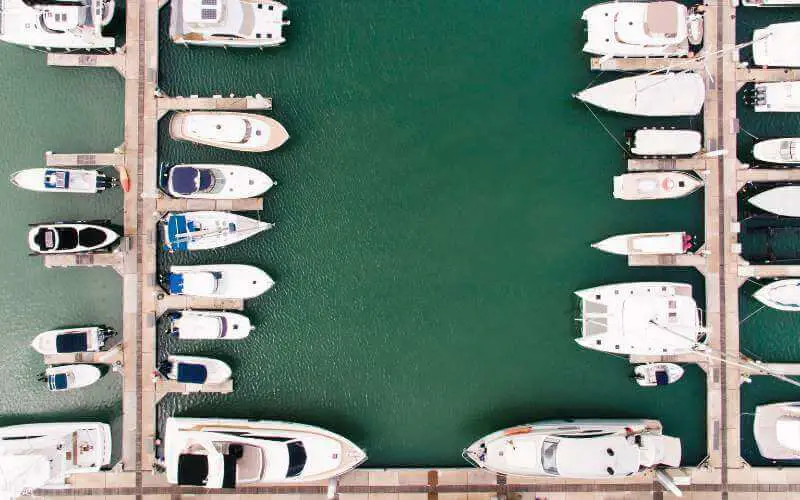
Frequently Asked Questions
What is the cost difference between purchasing a yacht and a boat.
Before you set sail, remember, a yacht is not just a bigger boat. The difference between purchasing a yacht and a boat can be significant, with yachts typically costing millions while boats range from thousands to hundreds of thousands.
Are there any legal requirements for operating a yacht versus a boat?
To operate a yacht, you may need a captain’s license and have to follow specific regulations depending on the size of your vessel. For boats, requirements vary by state and type of boat but are generally less strict.
How does the size of a yacht compare to the size of a boat?
Yachts are generally larger than typical boats, ranging from 33 feet to over 160 feet in length. However, the size distinction between a yacht and a boat needs to be clearly defined and can vary depending on personal perception.
Are there any specific maintenance requirements for a yacht that differ from those of a boat?
Yachts require meticulous maintenance to ensure they remain seaworthy. This includes regular inspections, cleaning, and repairs. These tasks are more complex and costly than those typically required for boats but crucial for the safety of all onboard.
What is the largest yacht in the world?
As of 2023, the largest yacht in the world is the SOMNIO , measuring 222 meters (728 feet) in length. The yacht is under construction and due for launch in mid-2024.
A yacht can be likened to a floating mansion, replete with lavish amenities and luxurious features, often owned by affluent individuals who relish time at sea. These vessels boast multiple decks, spacious cabins, and even swimming pools.
In contrast, boats come in various shapes and sizes, ranging from small dinghies to large commercial tugboats. While some boats offer basic amenities like a small cabin or restroom, they cannot compete with the luxury of a yacht.
The primary distinction between a yacht and a boat lies in luxury and comfort. Yachts epitomize extravagance, providing amenities akin to a high-end hotel suite, while boats prioritize practicality and functionality.
Ultimately, choosing between a yacht and a boat depends on personal preferences and intended use.
Boat Collisions: How to Avoid Collisions with Another Boat
Boating can be a fun and relaxing activity that many individuals enjoy. Whether cruising along the coastline, fishing with friends,
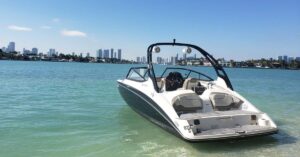
What is a Jet Boat? Propulsion System, Types, Pros and Cons
Jet boats are thrilling, high-speed watercraft making waves in the boating industry. Unlike conventional boats, a jet boat uses powerful

How to Steer a Boat: Mastering the Art of Boat Steering
If you’re ready to embark on a boating adventure and take hold of the helm, it’s time to dive into
Workshop Insider Newsletter
Be a workshop insider get our latest collection of news and announcements delivered to your inbox..., latest articles.
- September 12, 2023
The Ultimate Guide to Pipeliner Welding Hoods: Features, Benefits, Buying Guide, and Best Practices
- Welding Helmets Buying Guides
- September 11, 2023
- September 10, 2023
J-B Weld Removal: How to Remove JB Weld from Metal, Plastic, Skin, and More!
- Mechanical Engineering , Welding Technology
- August 19, 2023
- August 17, 2023
What are Bellows on a Boat: Everything You Need to Know
- August 16, 2023

- Privacy Policy
- Terms of Use
- Affiliate Disclosure
Click on the button to load the content from www.googletagmanager.com.
Load content

- Tailored Vacation Planner
- Cabin Yacht Charter
- Family Sailing Holidays
- Romantic Sailing Vacations For Couples
- Sailing with friends
- Greece all inclusive yacht charter
- Croatia all inclusive yacht charter
- Food & Wine Routes
- Yacht search
- Luxury sailing
Boat vs. Ship vs Yacht: What’s the Difference?
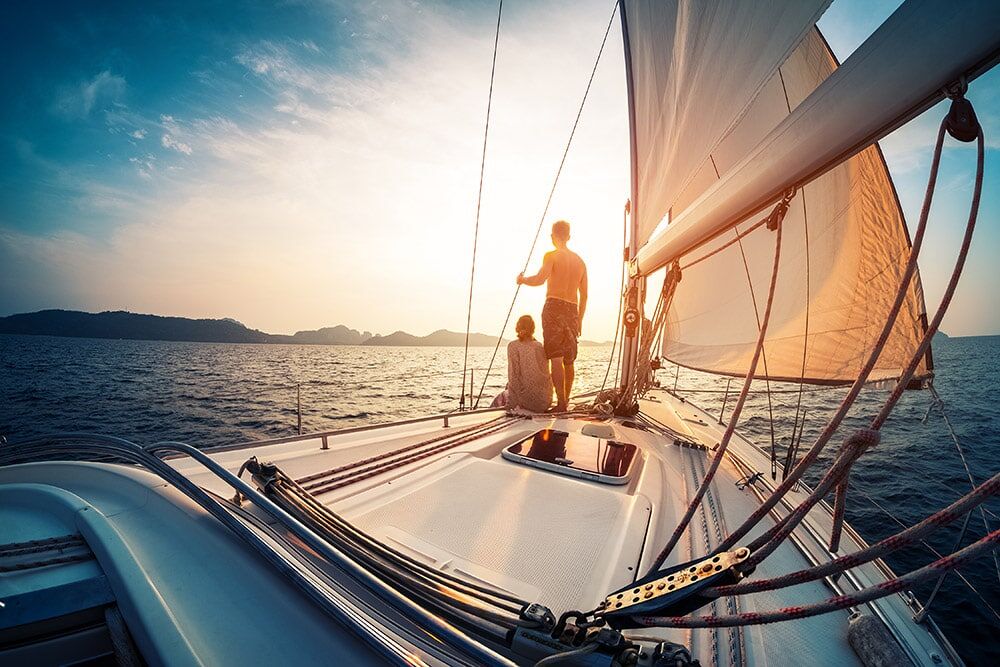
Language is a tricky thing, and picking out the differences between similar terms can be confusing. This is especially true when some of the definitions overlap. This is the case with the case of boat vs. ship vs. yacht . What’s the difference? We know in our gut that there are differences between these three seafaring vessels, but unless you’re a harbor master do you really know what counts as what?
Let’s get into some definitions, and we’re going to start with the easiest to explain: What is a yacht? What is a ship? And what is a boat?
Yacht vs. Ship vs. Boat
What is a yacht.
A yacht, I think everyone would agree, is fancier than a ship or a boat. “Yacht” infers some amount of luxury , and definitely recreation. There’s also something to be said about size. A yacht tends to be anywhere between 35 feet up to 160 feet. And some yachts, known as superyachts, go even beyond that. (Jeff Bezos just built a 417 foot yacht, but that’s really breaking yacht records.)
Because of the size, yachts tend to operate in larger bodies of water–generally the ocean. Yachts are able to handle rougher ocean waves, and they are also equipped with more advanced navigation and guidance instruments than smaller boats. Likewise, a yacht tends to have a full crew to help with the navigation, engineering, repairs, as well as having stewards that serve the yacht’s guests. This can be anywhere from a crew of four or five up to a crew of a few dozen on large yachts.
One interesting thing to note is that outside of the United States, a yacht refers to a sailboat , and a motorized yacht is called a “motor yacht”.
So, is a yacht a boat? Yes, technically a yacht is a boat. But a yacht is a very specific kind of boat.
Want to hop aboard?
Book your dream sailing vacation in top sailing destinations!
- Explore your charter options
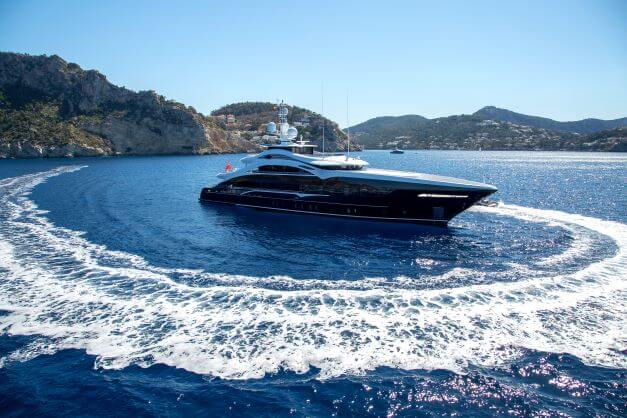
What is a Ship?
The term ship is most commonly associated with a very large boat, and something that is not as fancy as a yacht (one exception is that cruise ships can still be very fancy, but are referred to as ships because of their size and power.)
Ships are generally so large that they would never be found in a lake, with some exceptions for the Great Lakes, and are made for navigating the high seas of the open ocean. An ship can refer to a cruise ship, a naval ship, a tanker, a container ship, and many other commercial vessels.
Ships tend to have advanced navigation and technology, but much more advanced than that of a yacht due to the size, the speed, and the routes that a ship will take. They are meant to be traversing the open ocean for very long periods of time, from one continent to the next, while a yacht may only rarely set across the ocean and most often stays somewhat near land.
A ship will also have a much larger crew than a yacht or a boat. Ships are typically so large that they need not only one trained navigator but a set of navigators, plus an entire engineering team, and includes many more positions.
Finally, a ship is meant to carry things. This may be passengers, yes (in reference to cruise ships and some navy ships) but most ships are for carrying cargo–or even carrying equipment to do work on other ships including repair work or refueling.
What is a Boat?
Well, a boat is harder to define, because a yacht is technically a boat, and a ship is technically a boat. But when people refer to boats, they are almost always referring to something smaller than either a yacht or a ship. Boats may be motorized, like a speed boat, or they may sail, or they may be man-powered, like a rowboat or a kayak. Really, anything up to and including a liferaft, can be called a boat.
(As a side note that will just muddy the waters even further, submarine captains are adamant that their subs are boats. They are not ships.)
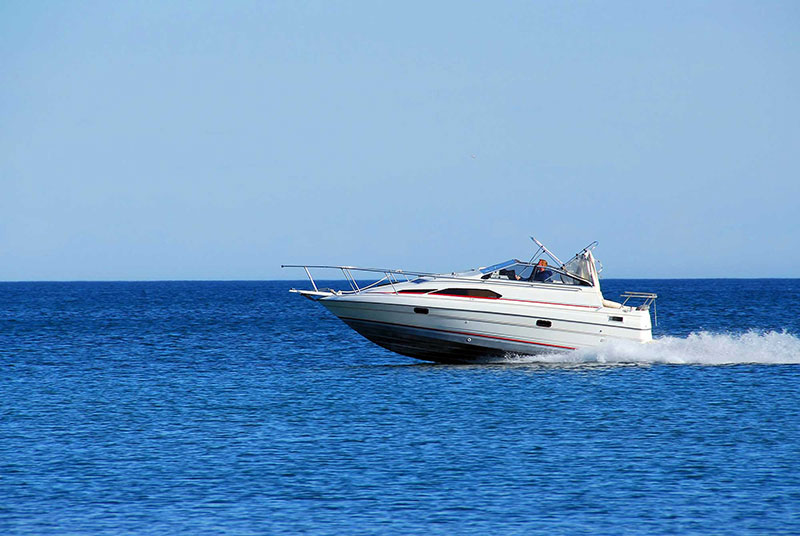
So, Boat vs. Ship Vs. Yacht?
Ultimately it comes down to this: all three of them are boats, but yachts are fancier, larger, and used for recreation, and ships are even larger, used commercially or by the navy, and are meant to cross oceans. The dividing line is sometimes thin, but generally speaking, when it comes to boats vs. ships.vs. yachts you can go by the adage “ I know it when I see it .”
Share article:
Have a question.
We have answers to your questions. So don’t hesitate to get in touch with our team today!
- GET MORE INFO
Feel free to ask us anything. All hands on deck. Let's sail
Thank you for sending us an inquiry, thank you so much for your enquiry.
Six presumed dead after cargo ship crash levels Baltimore bridge
BALTIMORE — A major Baltimore bridge collapsed like a house of cards early Tuesday after it was struck by a container ship, sending six people to their deaths in the dark waters below, and closing one of the country’s busiest ports.
By nightfall, the desperate search for six people who were working on the bridge and vanished when it fell apart had become a grim search for bodies.
“We do not believe that we’re going to find any of these individuals still alive,” Coast Guard Rear Admiral Shannon N. Gilreath said.
Jeffrey Pritzker, executive vice president of Brawner Builders, said earlier that one of his workers had survived. He did not release their names.
Up until then, Maryland Gov. Wes Moore had held out hope that the missing people might be found even as law enforcement warned that the frigid water and the fact that there had been no sign of them since 1:30 a.m. when the ship struck Francis Scott Key Bridge.
Moore expressed heartbreak after officials suspended the search for survivors.
"Our heart goes out to the families," he said. "I can’t imagine how painful today has been for these families, how painful these hours have been have been for these families."
It was a crushing blow to the loved ones of the missing men, who had waited for hours at a Royal Farms convenience store near the entrance of the bridge for word of their fate.
Follow live updates on the Baltimore bridge collapse
The tragic chain of events began early Tuesday when the cargo ship Dali notified authorities that it had lost power and issued a mayday moments before the 984-foot vessel slammed into a bridge support at a speed of 8 knots, which is about 9 mph.
Moore declared a state of emergency while rescue crews using sonar detected at least five vehicles in the frigid 50-foot-deep water: three passenger cars, a cement truck and another vehicle of some kind. Authorities do not believe anyone was inside the vehicles.
Investigators quickly concluded that it was an accident and not an act of terrorism.
Ship was involved in another collision
Earlier, two people were rescued from the water, Baltimore Fire Chief James Wallace said. One was in good condition and refused treatment, he said. The other was seriously injured and was being treated in a trauma center.
Moore said other drivers might have been in the water had it not been for those who, upon hearing the mayday, blocked off the bridge and kept other vehicles from crossing.
“These people are heroes,” Moore said. “They saved lives.”
Nearly eight years ago, the Dali was involved in an accident. In July 2016, it struck a quay at the Port of Antwerp-Bruges in Belgium, damaging the quay.
The nautical commission investigated the accident, but the details of the inquiry were not immediately clear Tuesday.
The Dali is operated and managed by Synergy Group. In a statement, the company said that two port pilots were at the helm during Tuesday's crash and that all 22 crew members onboard were accounted for.
The Dali was chartered by the Danish shipping giant Maersk, which said it would have no choice but to send its ships to other nearby ports with the Port of Baltimore closed.
The bridge, which is about a mile and a half long and carries Interstate 695 over the Patapsco River southeast of Baltimore, was "fully up to code," Moore said.
National Transportation Safety Board Chairwoman Jennifer Homendy said that her agency will lead the investigation and that a data recorder on the ship could provide more information.
"But right now we're focusing on the people, on the families," she said. "The rest can wait."
President Joe Biden vowed to rebuild the bridge and send federal funds.
"This is going to take some time," the president warned. "The people of Baltimore can count on us though to stick with them, at every step of the way, till the port is reopened and the bridge is rebuilt."
Speaking in Baltimore, Transportation Secretary Pete Buttigieg echoed the president's promise.
"This is no ordinary bridge," he said. "This is one of the cathedrals of American infrastructure."
But Buttigieg warned that replacing the bridge and reopening the port will take time and money and that it could affect supply chains.
The Port of Baltimore, the 11th largest in the U.S., is the busiest port for car imports and exports, handling more than 750,000 vehicles in 2023 alone, according to data from the Maryland Port Administration.
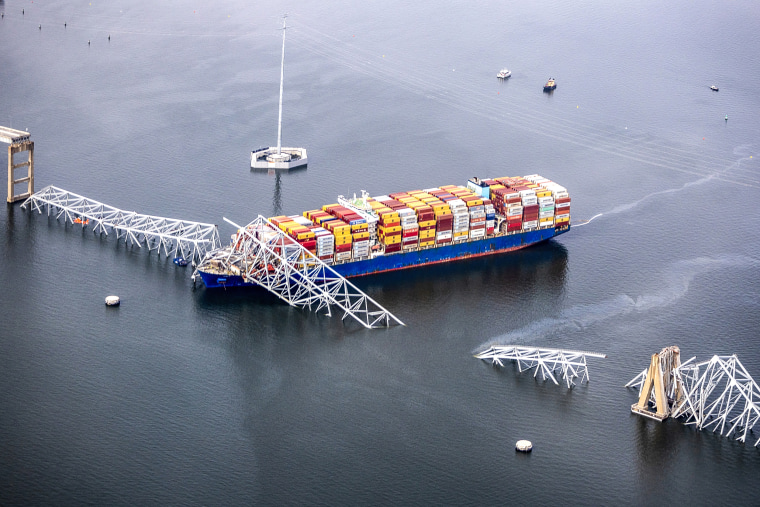
Writer David Simon, a champion of Baltimore who set his TV crime drama "The Wire" on the streets of the city he once covered as a reporter, warned online that the people who will suffer the most are those whose livelihoods depend on the port.
"Thinking first of the people on the bridge," Simon posted on X . "But the mind wanders to a port city strangling. All the people who rely on ships in and out."
Timeline of crash
Dramatic video captured the moment at 1:28 a.m. Tuesday when the Dali struck a support and sent the bridge tumbling into the water. A livestream showed cars and trucks on the bridge just before the strike. The ship did not sink, and its lights remained on.
Investigators said in a timeline that the Dali's lights suddenly shut off four minutes earlier before they came back on and that then, at 1:25 a.m. dark black smoke began billowing from the ship's chimney.
A minute later, at 1:26 a.m., the ship appeared to turn. And in the minutes before it slammed into the support, the lights flickered again.
Maryland Transportation Secretary Paul Wiedefeld said the workers on the bridge were repairing concrete ducts when the ship crashed into the structure.
At least seven workers were pouring concrete to fix potholes on the roadway on the bridge directly above where the ship hit, said James Krutzfeldt, a foreman.
Earlier, the Coast Guard said it had received a report that a “motor vessel made impact with the bridge” and confirmed it was the Dali, a containership sailing under a Singaporean flag that was heading for Sri Lanka.
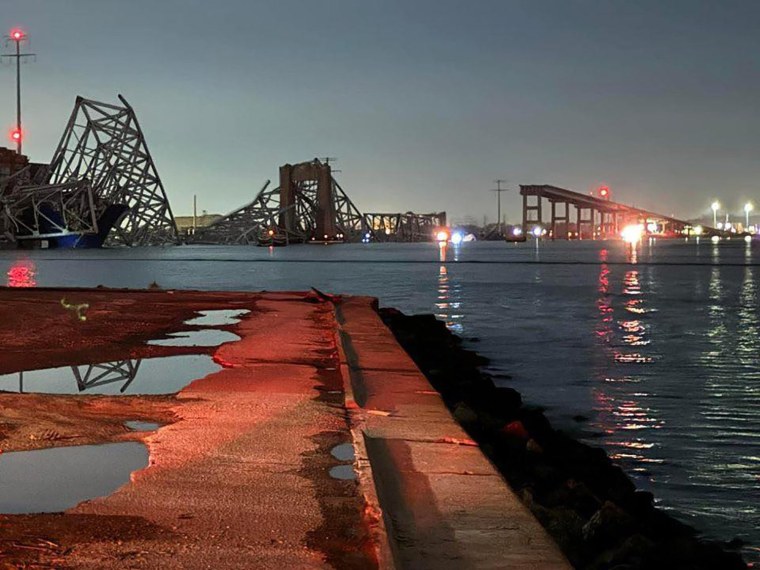
Bobby Haines, who lives in Dundalk in Baltimore County, said he felt the impact of the bridge collapse from his house nearby.
"I woke up at 1:30 this morning and my house shook, and I was freaking out," he said. "I thought it was an earthquake, and to find out it was a bridge is really, really scary."
Families of bridge workers wait for updates
Earlier in the day, relatives of the construction crew waited for updates on their loved ones.
Marian Del Carmen Castellon told Telemundo her husband, Miguel Luna, 49, was working on the bridge.
“They only tell us that we have to wait and that they can’t give us information,” she said.
Castellon said she was "devastated, devastated because our heart is broken, because we don’t know how they have been rescued yet. We are just waiting for the news."
Luna's co-worker Jesús Campos said he felt crushed, too.
“It hurts my heart to see what is happening. We are human beings, and they are my folks,” he said.
Campos told The Baltimore Banner that the missing men are from El Salvador, Guatemala, Honduras and Mexico.
Active search and rescue ends
The Coast Guard said it was suspending the active search-and-rescue effort at 7:30 p.m. Tuesday.
"Coast Guard’s not going away, none of our partners are going away, but we’re just going to transition into a different phase," Gilreath said at a news conference.
Maryland State Police Superintendent Roland L. Butler, Jr., said it was moving to a recovery operation. Changing conditions have made it dangerous for divers, he said.
Butler pledged to "do our very best to recover those six missing people," but the conditions are difficult.
"If we look at how challenging it is at a simple motor vehicle crash to extract an individual, I'm sure we can all imagine how much harder it is to do it in inclement weather, when it's cold, under the water, with very limited to no visibility," he said.
"There's a tremendous amount of debris in the water," which can include sharp metal and other hazards, and that could take time, Butler said.
'A long road in front of us'
Built in 1977 and referred to locally as the Key Bridge, the structure was later named after the author of the American national anthem.
The bridge is more than 8,500 feet long, or 1.6 miles. Its main section spans 1,200 feet, and it was one of the longest continuous truss bridges in the world upon its completion, according to the National Steel Bridge Alliance .
About 31,000 vehicles a day use the bridge, which equals 11.3 million vehicles per year, according to the Maryland Transportation Authority.
The river and the Port of Baltimore are both key to the shipping industry on the East Coast, generating more than $3.3 billion a year and directly employing more than 15,000 people.
Asked what people in Baltimore can expect going forward, the state's transportation secretary said it is too early to tell.
"Obviously we reached out to a number of engineering companies, so obviously we have a long road in front of us," Wiedefeld said.
Julia Jester reported from Baltimore, Patrick Smith from London, Corky Siemaszko from New York and Phil Helsel from Los Angeles.
Julia Jester is a producer for NBC News based in Washington, D.C.
Patrick Smith is a London-based editor and reporter for NBC News Digital.
Phil Helsel is a reporter for NBC News.
Corky Siemaszko is a senior reporter for NBC News Digital.
- Share full article
Advertisement
Supported by
What Lies Beneath: London Boat Race Marred by Sewage Concerns
Rowers in the Oxford-Cambridge Boat Race this weekend have been warned of dangerously high levels of E. coli in the River Thames, the latest sign of England’s polluted waterways.

By Stephen Castle
Reporting from London
The warning was stern: Do not enter the water. Not because of the tide. Not because of sharks. Because of the sewage.
For almost two centuries, rowers from Oxford University have raced their rivals from Cambridge in a contest that typically ends with jubilant members of the victorious crew jumping into the River Thames in celebration.
This year they will be staying as dry as possible.
After the discovery of elevated levels of E. coli in the river, rowers have been urged to stay out of the water, to cover any open wounds and to wash themselves down at a dedicated cleansing station at the finish.
The warning from organizers of the annual competition known as the Boat Race is the most striking symbol of the dire and deteriorating state of Britain’s rivers and coastlines. E. coli, which can be contracted from inadequately treated water supplies, can cause a number of symptoms including diarrhea, stomach cramps and occasionally fever. According to Britain’s health service , a small number of people can also develop hemolytic uraemic syndrome which can sometimes lead to kidney failure and death.
In recent years, England’s private water companies have faced fierce criticism for discharging sewerage and untreated rainwater into waterways and onto beaches when rainfall is heavy — a tactic they use to prevent the system from backing up.
Water firms in England were privatized in 1989, and critics accuse them of paying out huge sums in dividends to their shareholders while failing to make vital infrastructure investments.
While campaigners have long highlighted the problem with water quality, few Britons will have expected contamination to impact the Boat Race, a fixture of the sporting calendar which attracts up to 250,000 spectators as well as a TV audience of millions, organizers say.
Rowers from the two ancient universities will compete over the 4.25-mile course on the Thames on Saturday afternoon, the 169th men’s and 78th women’s races.
The first Boat Race took place on 10 June 1829 at Henley-on-Thames, west of London, and was won by Oxford. However, for the next 25 years, contests happened irregularly and, from 1836, in the national capital. They became annual events in 1856. A women’s boat race was introduced in 1927 but only took place intermittently until the mid-1960s.
The new guidance follows testing of the Thames by River Action, a charity that campaigns for cleaner waterways and said that its tests revealed levels of E. coli up to 10 times higher than the minimum accepted standards for bathing water.
The testing locations suggested that the source of pollution was from Thames Water, the local water company, “discharging sewage directly into the river and its tributaries,” River Action said in a statement.
“We are in a tragic situation when elite athletes are issued with health guidance ahead of a historic race on the capital’s river,” said James Wallace, chief executive officer of River Action. “Our water quality results show what happens after decades of neglect by an unregulated water company, Thames Water.”
The Boat Race, a company that puts on the race and was set up by the Oxford and Cambridge Rowing Foundation, said that it “and the universities involved love rowing on the Thames,” but that “water quality is an ongoing concern.”
In a statement it added: “We have put in place a series of precautionary measures this year to protect the health of our athletes, which includes guidance regarding the covering up of open wounds, regular hand washing, a cleansing station at the finish area and highlighting the risks of entering the water.”
Most of Britain relies on a combined sewer system that pushes both rainwater and human waste along the same set of pipes.
When rainfall is heavy, water firms are sometimes permitted to discharge some of this into rivers or the sea to avoid the pipes being overwhelmed, something that could cause sewage to back up and flood roads and homes.
Critics accuse the water firms of spilling sewage even in dry weather and, according to figures released on Wednesday, last year there were on average 1,271 spills a day across England, compared with 825 in 2022.
In a statement, Thames Water, the utility that is responsible, blamed “higher than average long-term rainfall across London and the Thames Valley.” It said overflows were designed to operate automatically when the sewer network was about to be overwhelmed, so that diluted wastewater would be released into rivers instead of flowing “back up into people’s homes.”
The company added that it was “working hard to make these discharges unnecessary” and had announced plans to upgrade one sewage treatment plant, in southwest London, “to treat the high volumes of incoming sewage and reduce the need for overflows during wet weather.”
That may be of little comfort to this year’s rowers who know that, even if they take all the precautions advised, history suggests there is no guarantee they can stay out of the Thames.
In 1912 both crews were submerged by bad weather, and the most recent sinking took place in 1984 when the Cambridge men’s boat hit a barge before the race had even started.
Stephen Castle is a London correspondent of The Times, writing widely about Britain, its politics and the country’s relationship with Europe. More about Stephen Castle
Shocking video shows moment Baltimore bridge collapses following boat strike
Rescuers were searching for survivors in the hours after the collapse, by the associated press and nbc staff • published march 26, 2024 • updated on march 26, 2024 at 10:38 am.
Shocking video shows the moment the 1.6 mile-long Francis Scott Key Bridge in Baltimore, Maryland, collapsed after a container ship rammed the structure, causing it to snap and plunge into the river below, along with several vehicles that were on it.
Rescuers were searching for survivors in the hours after the collapse.
Feeling out of the loop? We'll catch you up on the Chicago news you need to know. Sign up for the weekly Chicago Catch-Up newsletter here.
The moment of the collapse was captured on video. Watch it here:
Video shows a major bridge in Baltimore, Maryland, partially collapsing after it was hit by a cargo ship. https://t.co/zDkvQuj1hq — NBC News (@NBCNews) March 26, 2024
The Volunteer Firefighters from @jmvfc8 , the Volunteer Swift Water Team and the @HarfordCoDES Special Operations Team are assisting the Unified Command at the Baltimore Francis Scott Key Bridge collapse. pic.twitter.com/ipoTR2HljY — Harford Co., MD Fire & EMS (@HarforCoFireEMS) March 26, 2024
Here's what we know so far:
What happened?

Police respond to Woodfield Mall, urge shoppers to avoid part of parking lot

2024 Total Solar Eclipse interactive map: How much of the eclipse will you be able to see in Illinois? Find out here
The ship crashed into one of the bridge’s supports, causing the structure to snap and buckle at several points and tumble into the water in a matter of seconds — a shocking spectacle that was captured on video and posted on social media. The vessel caught fire, and thick, black smoke billowed out of it.
“Never would you think that you would see, physically see, the Key Bridge tumble down like that. It looked like something out of an action movie,” said Baltimore Mayor Brandon Scott, calling it “an unthinkable tragedy.”
Synergy Marine Group — which owns and manages the ship called the Dali — confirmed the vessel hit a pillar of the bridge at about 1:30 a.m. while two pilots were in control. It said all crew members, including the pilots, were accounted for and there are no reports of any injuries.
The Dali was headed from Baltimore to Colombo, Sri Lanka, and flying under a Singapore flag, according to data from Marine Traffic. The container ship is about 985 feet (300 meters) long and about 157 feet (48 meters) wide, according to the website.
Why did the ship hit the bridge?
It was not immediately clear what caused the cargo ship to crash into the bridge long before the busy morning commute in what one official called a “developing mass casualty event” in a major American city just outside of Washington.
What do we know about the rescue efforts?
Two people were rescued from the waters under the bridge, one in serious condition, according to Baltimore Fire Chief James Wallace. He said authorities “may be looking for upwards of seven people” but said that number could change. It was not clear if the two rescued were included in the seven.
Sonar has indicated that there are vehicles in the water, where the temperature was about 47 degrees Fahrenheit (8 degrees Celsius) in the early hours of Tuesday, according to a buoy that collects data for the National Oceanic and Atmospheric Administration.
Earlier, Kevin Cartwright, director of communications for the Baltimore Fire Department, told The Associated Press that several vehicles were on the bridge at the time of the collapse, including one the size of a tractor-trailer truck. The bridge came down in the middle of night when traffic would be lighter than during the day when thousands of cars traverse the span.
Cartwright called the collapse a “developing mass casualty event,” though he didn’t know at the time how many people were affected.
He added that some cargo appeared to be dangling from the bridge.
Maryland Gov. Wes Moore declared a state of emergency and said he was working to get federal resources deployed. The FBI was also on the scene.
What is the Francis Scott Key Bridge?
The bridge spans the Patapsco River at the entrance to a busy harbor. The river leads to the Port of Baltimore, a major hub for shipping on the East Coast. Opened in 1977, the bridge is named for the writer of “The Star-Spangled Banner.”
This article tagged under:

IMAGES
VIDEO
COMMENTS
One of the main differences between a houseboat and a yacht is their design or appearance. If you take a closer look at a houseboat, you will notice it resembles something that looks like a floating home. And this explains why it's called a houseboat. It's a combination of a small house and a boat, thus the name.
Houseboats vs. Yachts . The main differences between the two can be broken down into three categories: appearance, purpose, and liveability. Appearance. Appearance is an obvious difference between these two. A houseboat looks like a small, floating home, while a yacht resembles the typical image of a boat.
A house boat is more akin to a stationary home on water. While house boats can be equipped with amenities similar to yachts, they are typically designed for comfort and extended stays rather than high-speed travel. Motor Yacht vs House Boat . Motor yachts are sleek, motor-powered vessels built for cruising at higher speeds. They offer the best ...
Here are some common mistakes to avoid when it comes to yacht vs houseboat: 1. Assuming Yachts And Houseboats Are The Same. One of the most common mistakes people make is assuming that yachts and houseboats are the same thing. While both are watercraft, they serve different purposes and have different features. A yacht is a luxury vessel ...
1.Saving Money. Living on board a boat will often be far cheaper than renting or owning a traditional home. There will be less expenses and the original purchase price is often far cheaper than what you could ever purchase a house for. Not only will you save money on the purchase but you will also save money on the monthly expenses.
Different Community Feel: A houseboat community can be transient as neighbors come and go, fostering a unique camaraderie among fellow water dwellers. Location, Location, Location: Traveling with a Houseboat vs. Living on the Dock. The allure of a houseboat lies significantly in the promise of mobility and ever-changing views.
Like with buying a house, floating homes and houseboats vary widely in cost to buy one. For a new houseboat from East Coast Houseboats, Drage says the range starts with a one-bedroom, 22-foot houseboat that starts under $90,000. At the higher end of the spectrum, a two-story houseboat that's 50 feet long and 16 feet wide goes for around $350,000.
Houseboats can be used for everything from weekend getaways to full-time living. Yachts, on the other hand, are designed primarily for leisure and pleasure. They are typically smaller than houseboats and have fewer amenities geared towards long-term living. However, they often feature luxurious accommodations and state-of-the-art technology ...
Understand the difference between houseboat and yacht: key factors like space, cost, and lifestyle to guide your decision. Choose wisely with our help.
What is a Houseboat? A houseboat is exactly what the name says - a vessel that is primarily used as a residence for the owner. They may be a standard houseboat, shaped like a floating house on pontoons; or a long canal boat; or even some traditionally built houses on floating docks; while some super yacht owners have even been known to turn their luxury yachts into a full-time home, today we ...
The main difference between a houseboat and a yacht is that a houseboat is a floating home while a yacht is a luxurious pleasure boat. Houseboats provide a unique living experience on water, offering comfortable amenities and allowing for a more relaxed lifestyle, while yachts are typically used for leisure activities and often come with a crew and extravagant features.
You can typically purchase floating homes with a smaller footprint for about $600,000. Gunner Davis, a Realtor at Coldwell Banker Realty in Tampa, Florida, says houseboats and floating homes in his area can cost from less than $100,000 to upwards of $1 million. A two-story 50 x 16-foot houseboat would typically sell for about $350,000.
Boathouses: A Classic Waterfront Haven. A boathouse is a structure built on the water's edge, typically used for storing boats. Boathouses can be either attached or detached from the shore, providing direct access to the water. They serve as a secure and convenient storage space for watercraft, protecting them from the elements.
Despite their similarities, houseboats and yachts are two different vessels. If you're planning to get either a houseboat or yacht, read more below to find out which one is for you. Price. Houseboats are more affordable than yachts. One reason is that they are easier to maintain and are not sailed frequently.
A floating house is a type of housing that is attached to a dock on the water, which could be a river or lake. The building is an actual house — not a boat at all — and is connected to the local sewer and utility lines. Floating houses cannot move, but they are right on the water. Designs of floating houses tend to lean very modern with ...
The maritime definition of a yacht is a private pleasure ship of at least 33 feet. At YachtWorld, we tend to consider anything in the 35-40-foot range (or larger) a yacht. Then again, different kinds of boats approach being that long, even some pontoon boats and walkarounds. However, an engine-powered watercraft under 30 feet is not usually ...
Fincham's houseboat is in a marina with other houseboats and floating homes. Kate Fincham/@mylittlehouseboat "It's a very serene and calm way of life compared to downtown," Kate Fincham, 35, told BI .
Yacht vs. boat: the difference between a yacht and a boat is that a yacht is a larger boat that typically includes sleeping quarters such as a cabin, a galley or kitchen, and a bathroom with a shower and toilet. A boat generally does not include any of these amenities, or if it does, only contains a subset of them. ...
A boat becomes a "ship" often once it's reached a specific size, which tends to be on the bigger side and suitable for sea travel. In most cases, ships serve as working vessels, such as transport or cruise liners. "Yachts" are also more substantial, but they're solely recreational vessels and often used for luxury purposes.
This means that it can't exceed a width of 8.5′ wide. A very large RV or motorhome may reach lengths over 40′ but in most cases, a typical RV will be between 25′ and 35′. Houseboats, on the other hand, are usually much larger than this. Even a small houseboat is usually over 30′ long and 14′ wide.
It also refers to a tender to a bigger boat or yacht. "Ship" is a large commercial boat, often used for distance travel and transport of goods or passengers - cruise ship, container ship, etc. "Yacht" is typically a larger boat with luxury amenities used as a recreational vessel— motor yacht, sailing yacht. "Superyacht" is a ...
Speed Boat vs Yacht. When comparing a speed boat and a yacht regarding performance, the speeds you can reach with a yacht over 79ft are normally immensely higher than with a smaller boat. Speed boats, also known as performance boats or sport boats, differ from yachts in terms of size and purpose. Larger speed boats can be categorized as ...
Yacht Size vs Boat Size. As we mentioned above, people have different opinions about how big a yacht has to be. The bare minimum seems to be at least 33 feet. That said,I have even seen smaller boats called yachts but let's say, at a minimum, any vessel under 30 feet will always be a boat of some kind and would rarely if ever be properly ...
What Size Boat is Considered a Yacht? The classification of yacht vs. boat is more about design and purpose than strict size parameters. However, in general terms, 30 feet (about 9 meters) and longer boats are called yachts. Super Yachts: Typically, vessels over 79 feet (24 meters) fall into this category.
Difference in Size. Yachts are typically larger than boats, often measuring over 40 feet long. While boats come in various sizes, they often range from around 20-30 feet in length. Boats are usually smaller and built for leisurely activities like fishing or cruising on lakes and rivers.
Ultimately it comes down to this: all three of them are boats, but yachts are fancier, larger, and used for recreation, and ships are even larger, used commercially or by the navy, and are meant to cross oceans. The dividing line is sometimes thin, but generally speaking, when it comes to boats vs. ships.vs. yachts you can go by the adage " I ...
The Francis Scott Key bridge in Baltimore, Maryland, partially collapsed early Tuesday, police said. It was hit by a ship, officials said.
Nvidia did not submit results for Blackwell either, as it wasn't ready when results had to be submitted, but still won the race with the Hopper GPU by up to 4X. Too bad for AMD, as they probably ...
The first Boat Race took place on 10 June 1829 at Henley-on-Thames, west of London, and was won by Oxford. However, for the next 25 years, contests happened irregularly and, from 1836, in the ...
Shocking video shows the moment the 1.6 mile-long Francis Scott Key Bridge in Baltimore, Maryland, collapsed after a container ship rammed the structure, causing it to snap and plunge into the ...